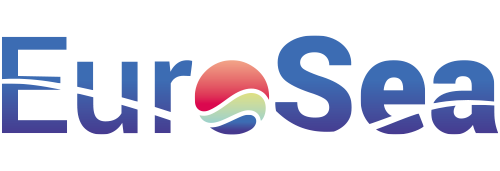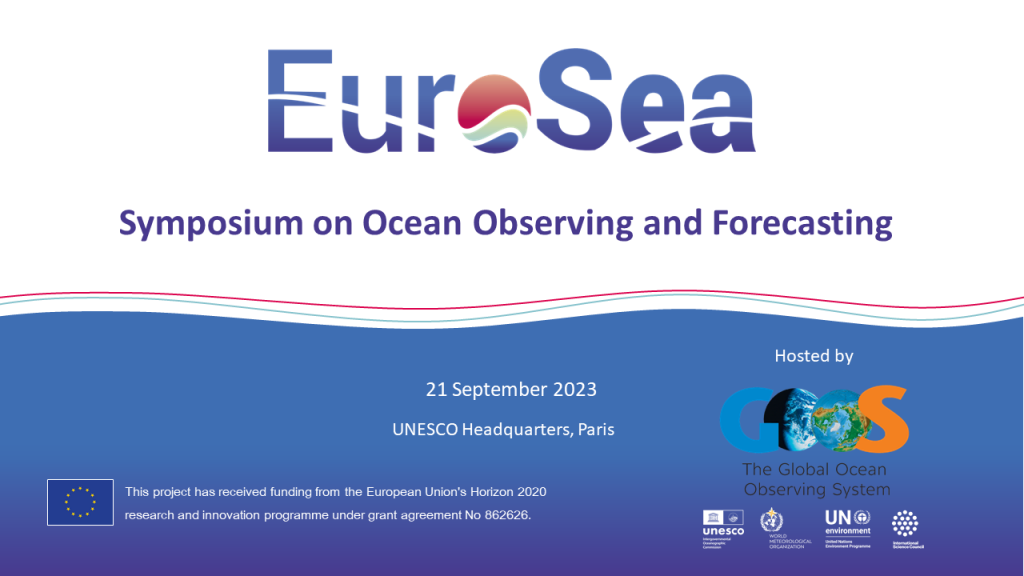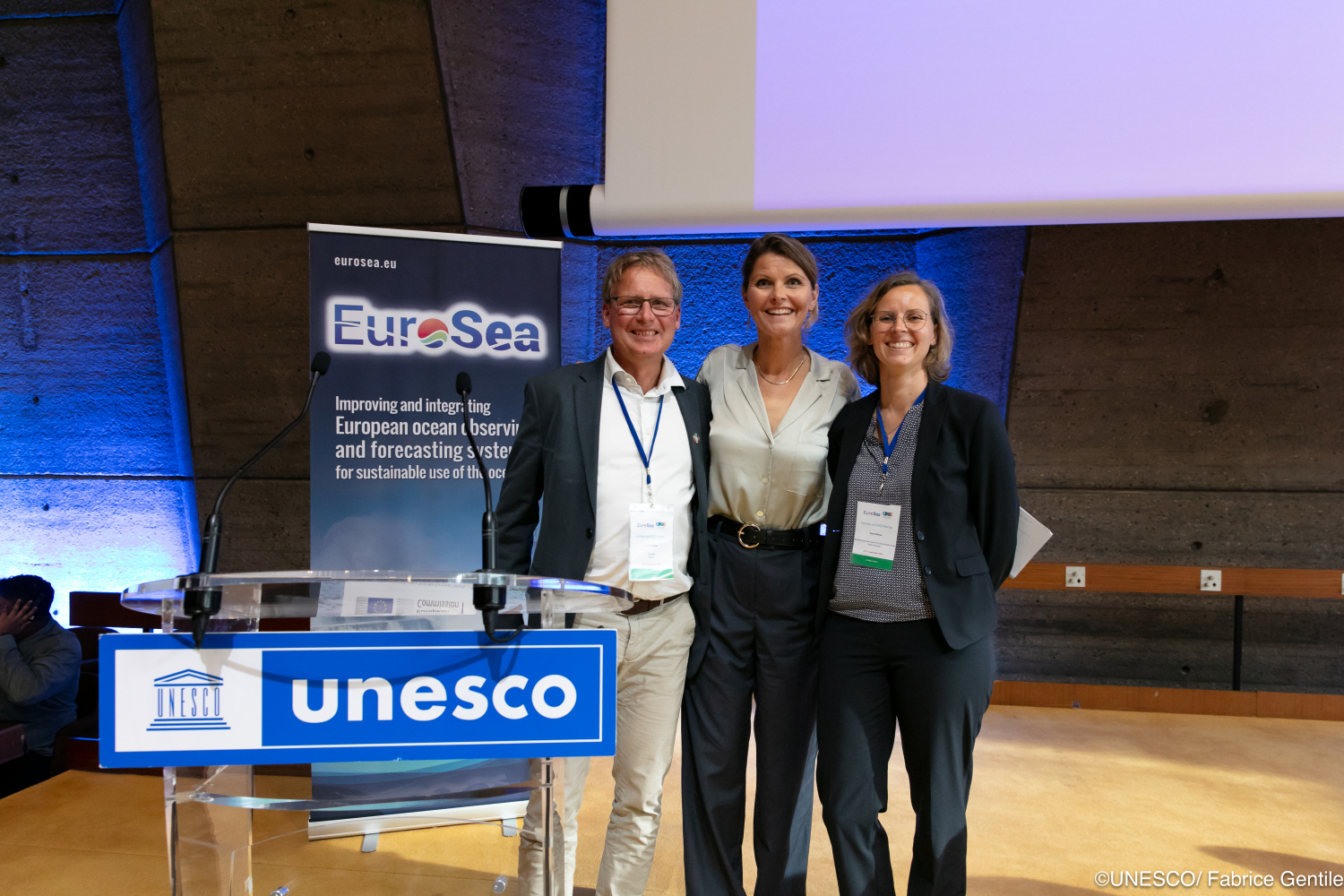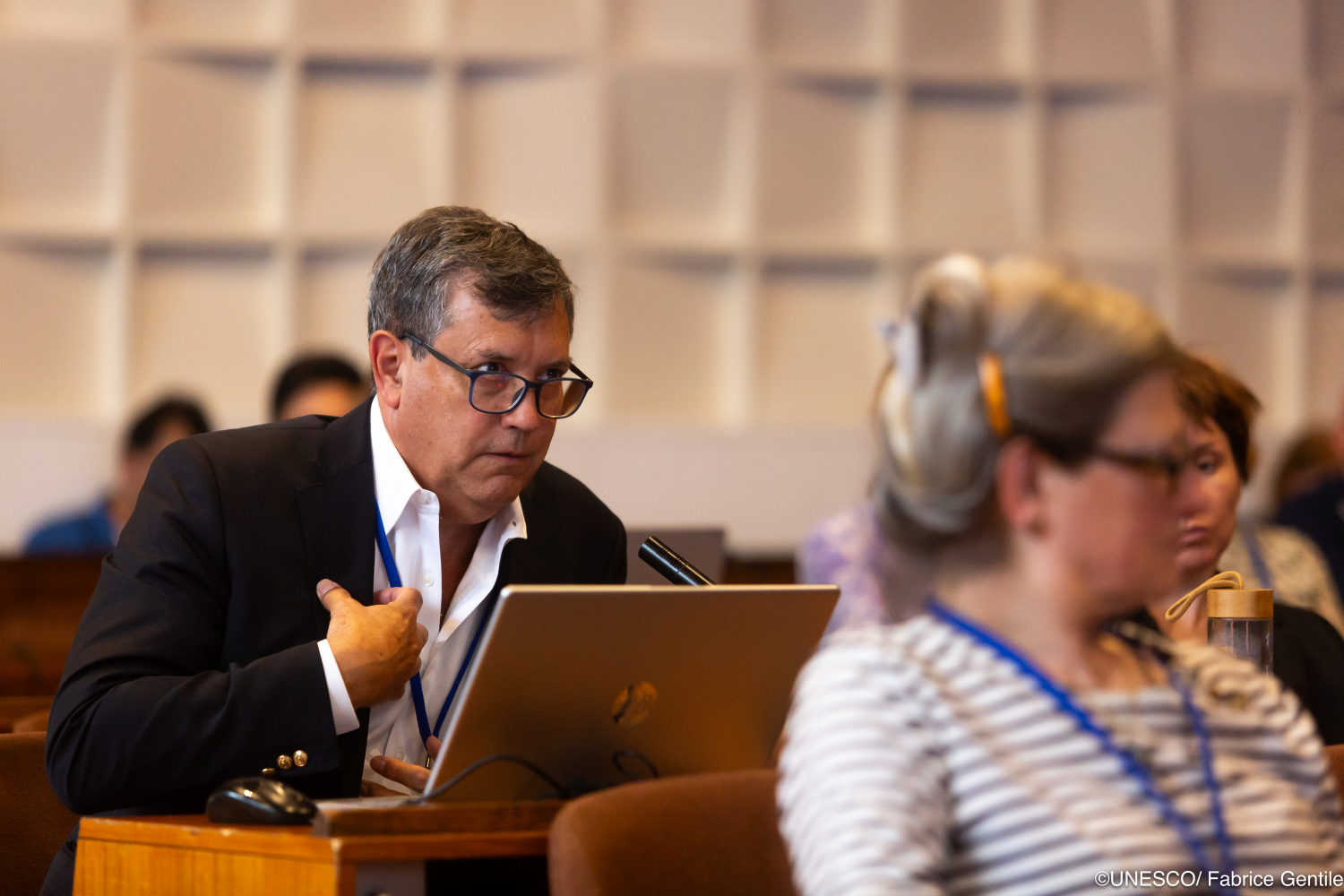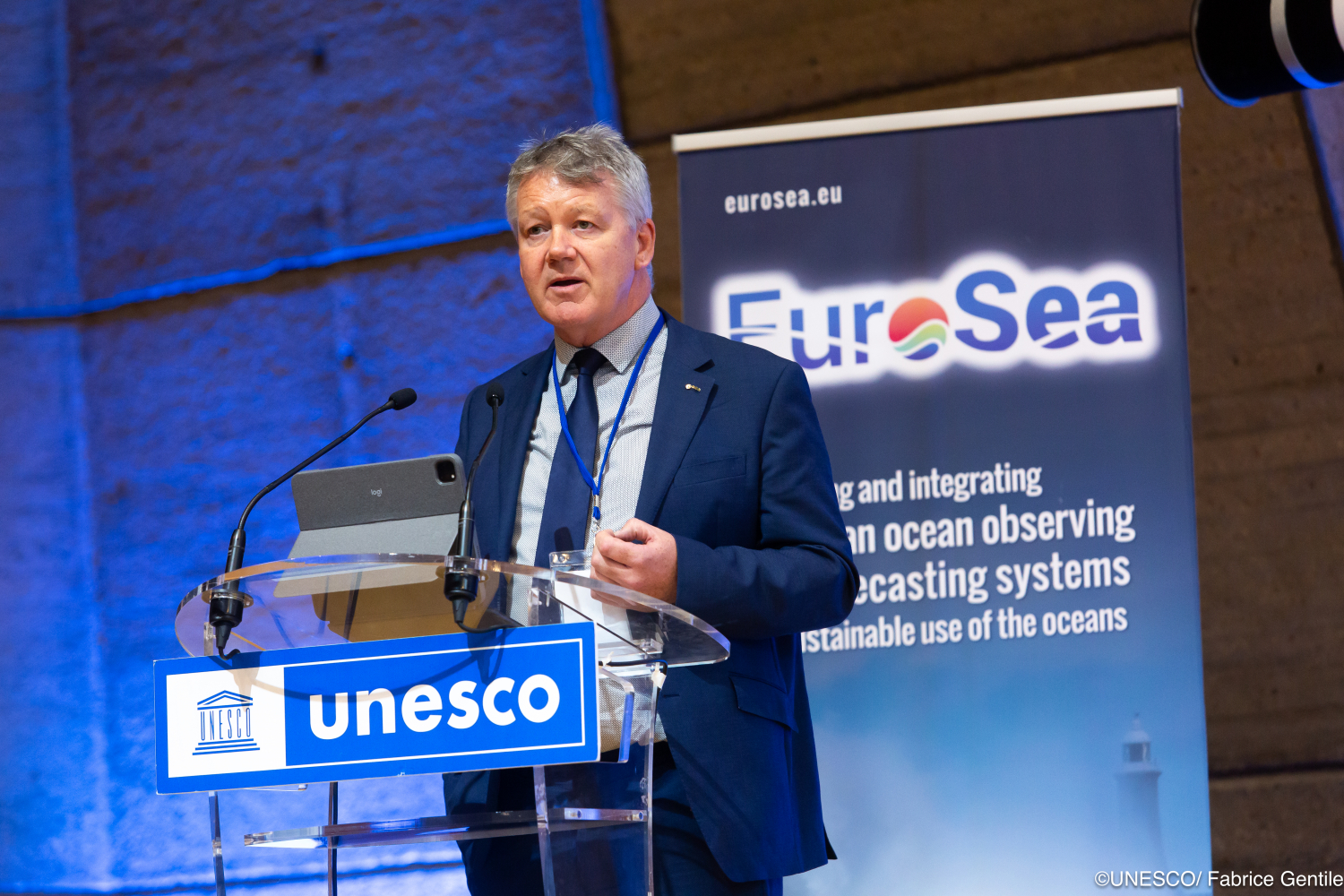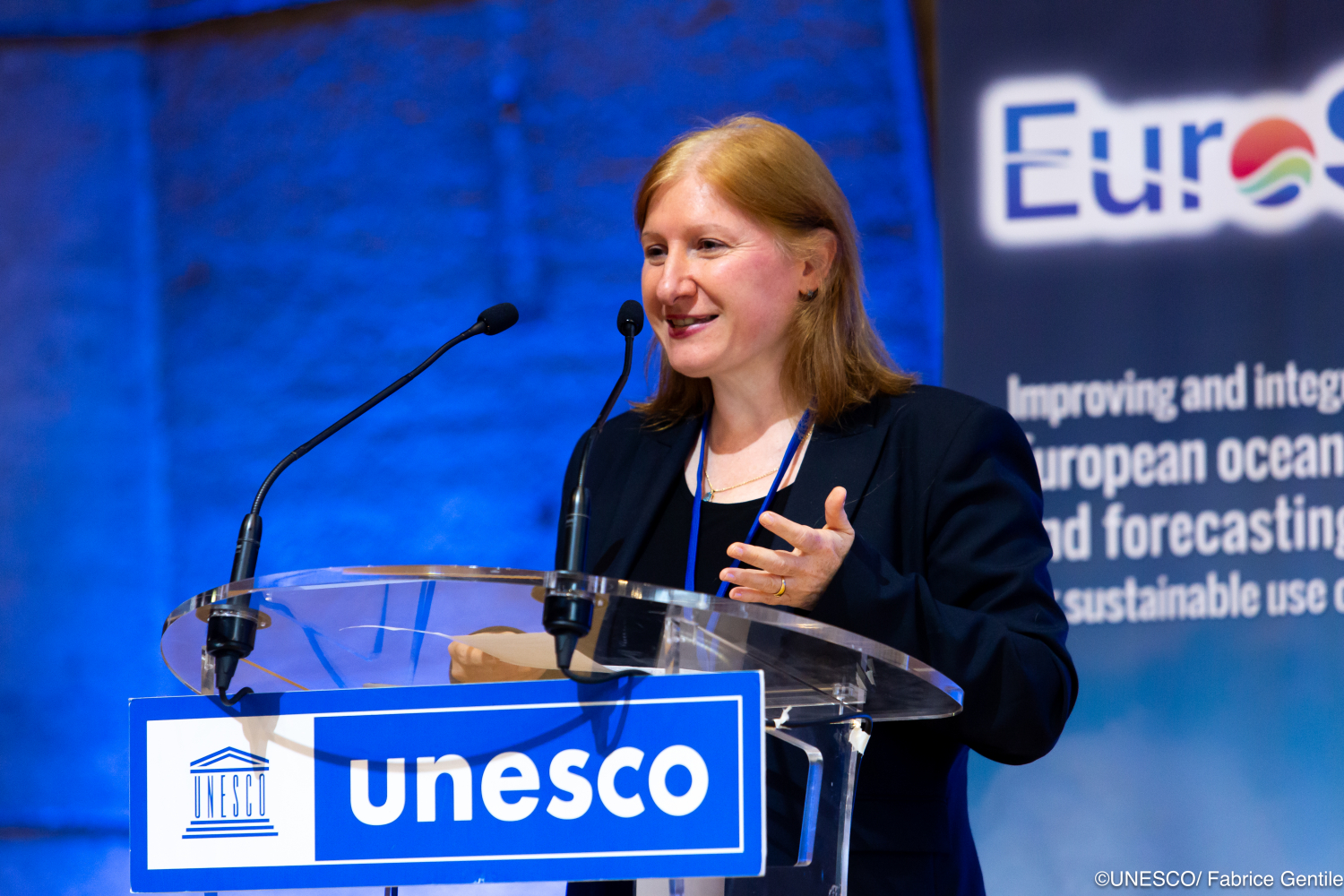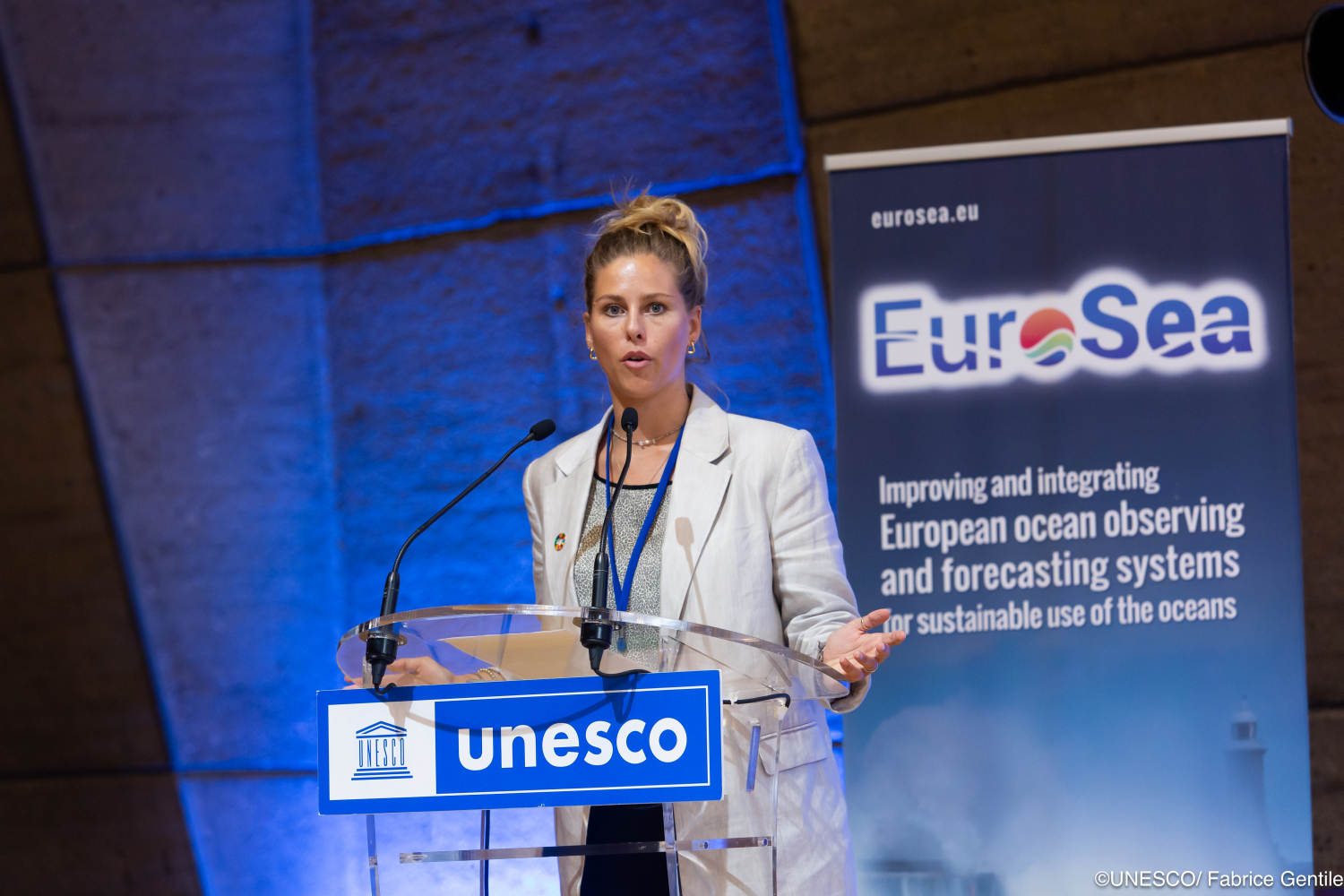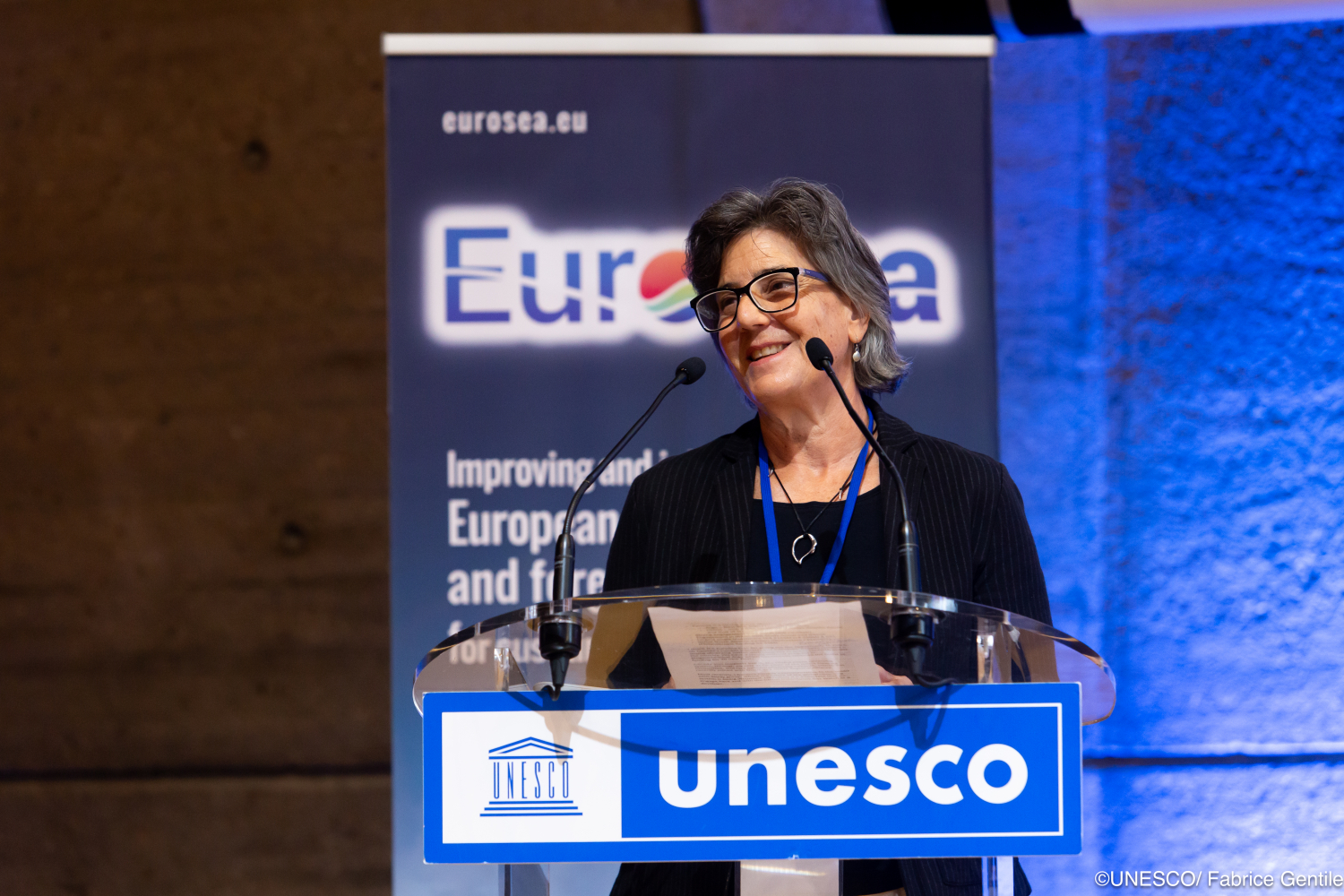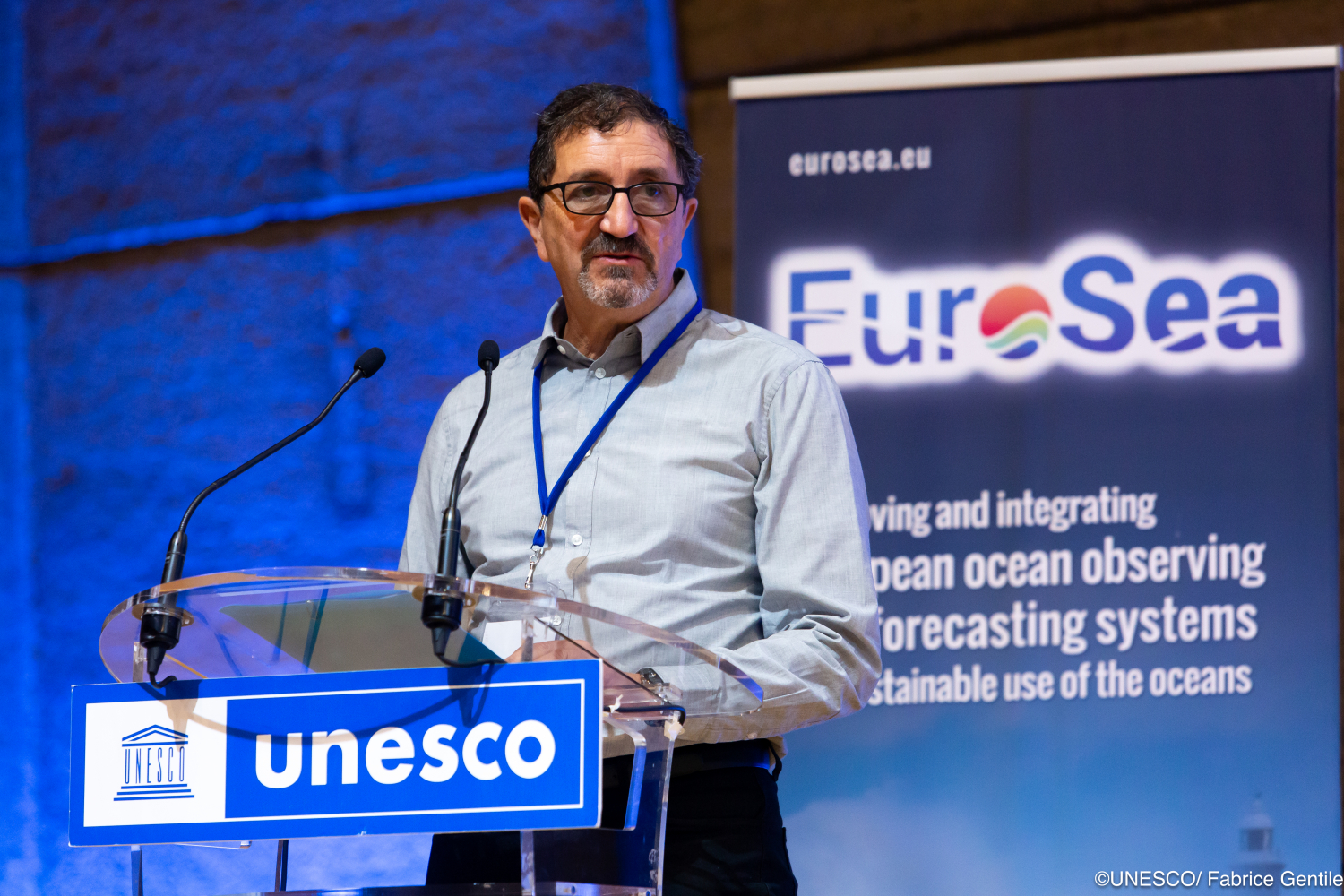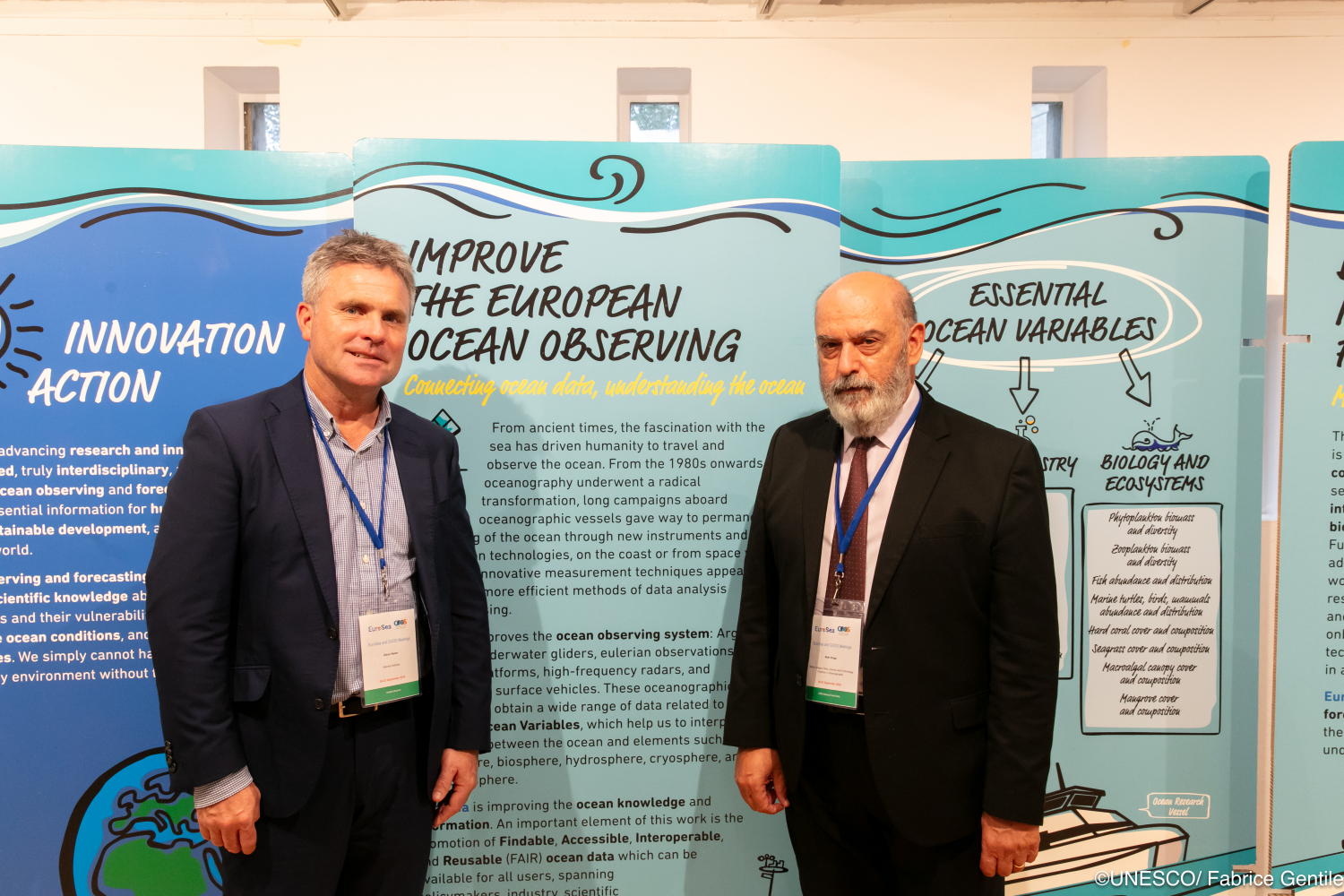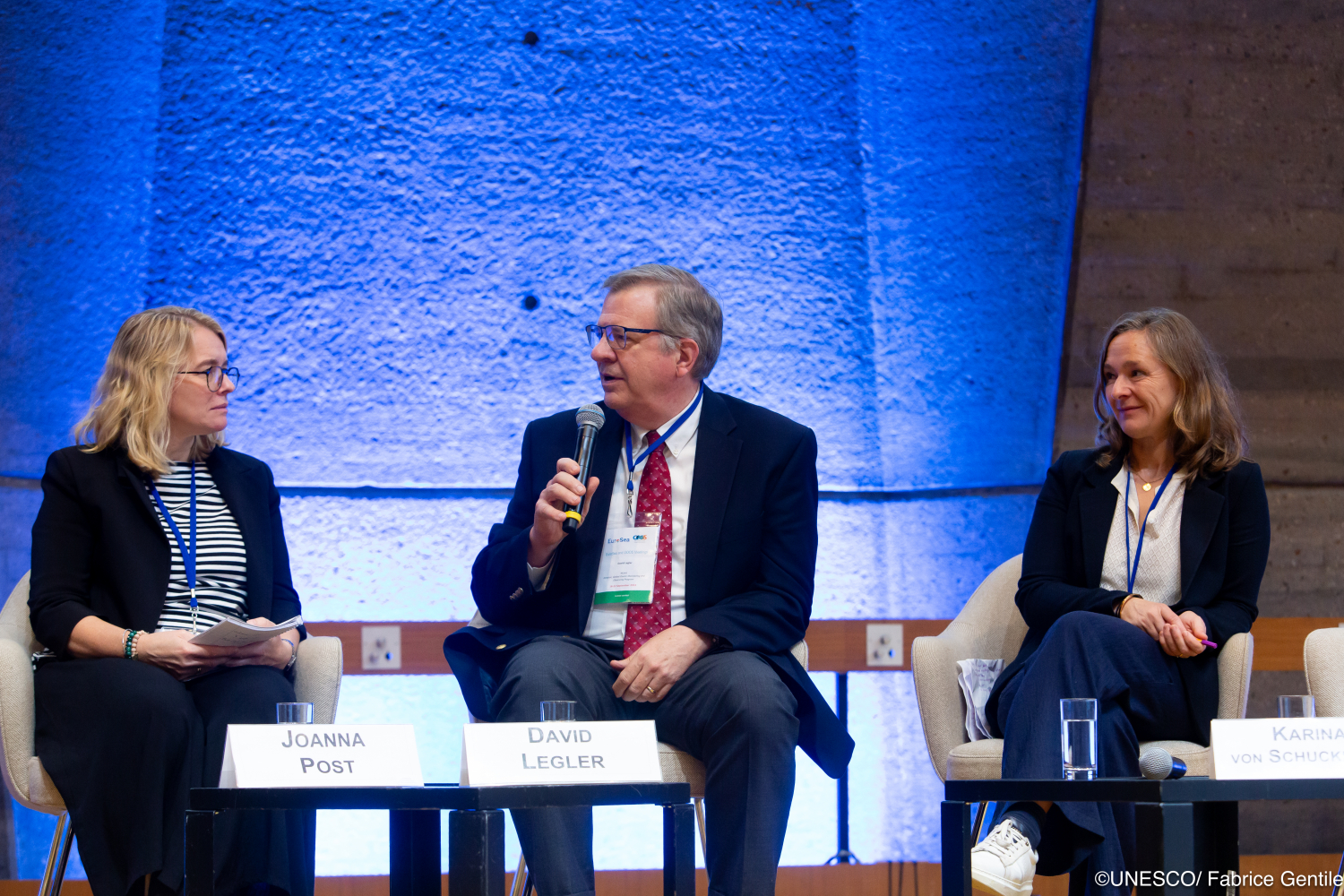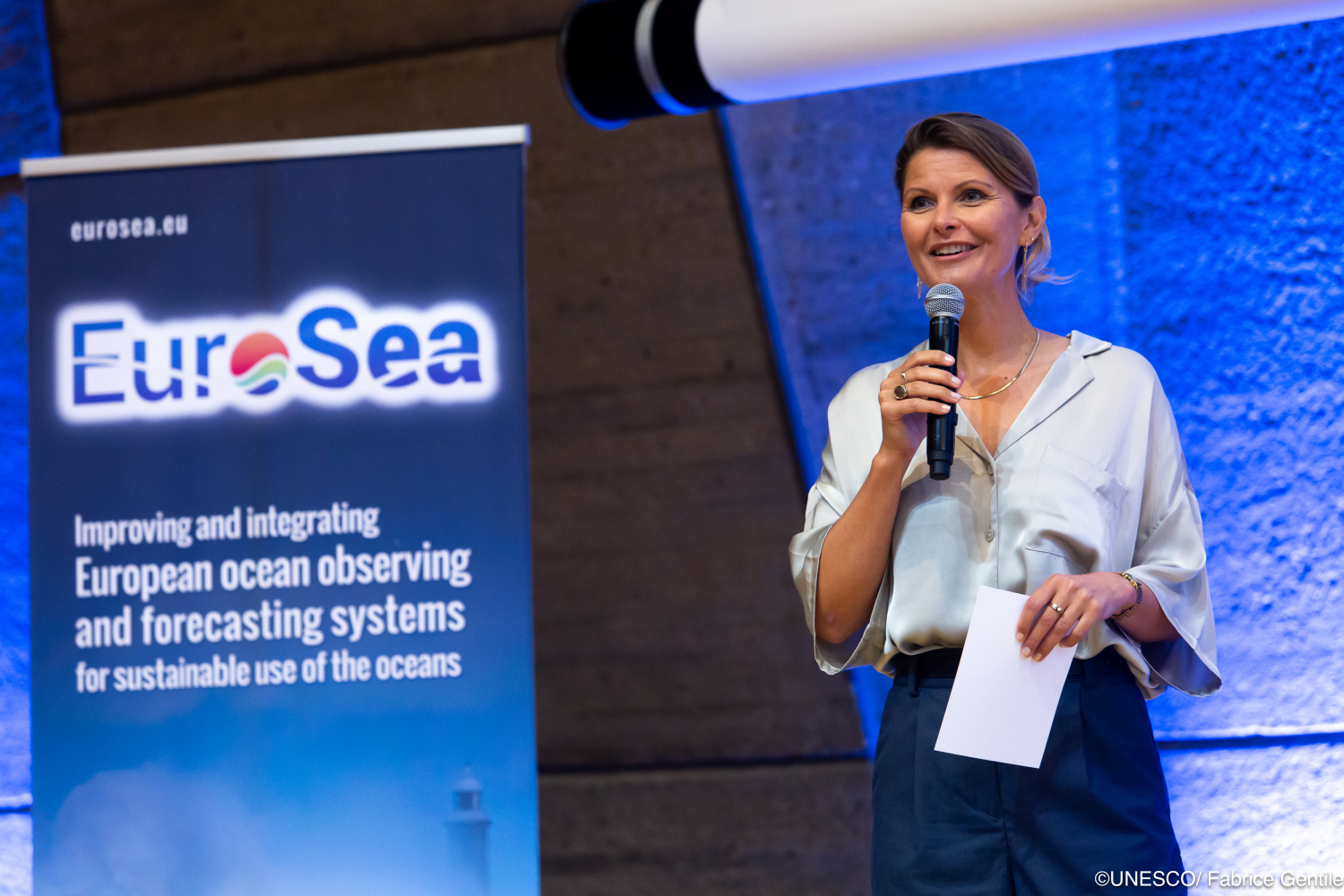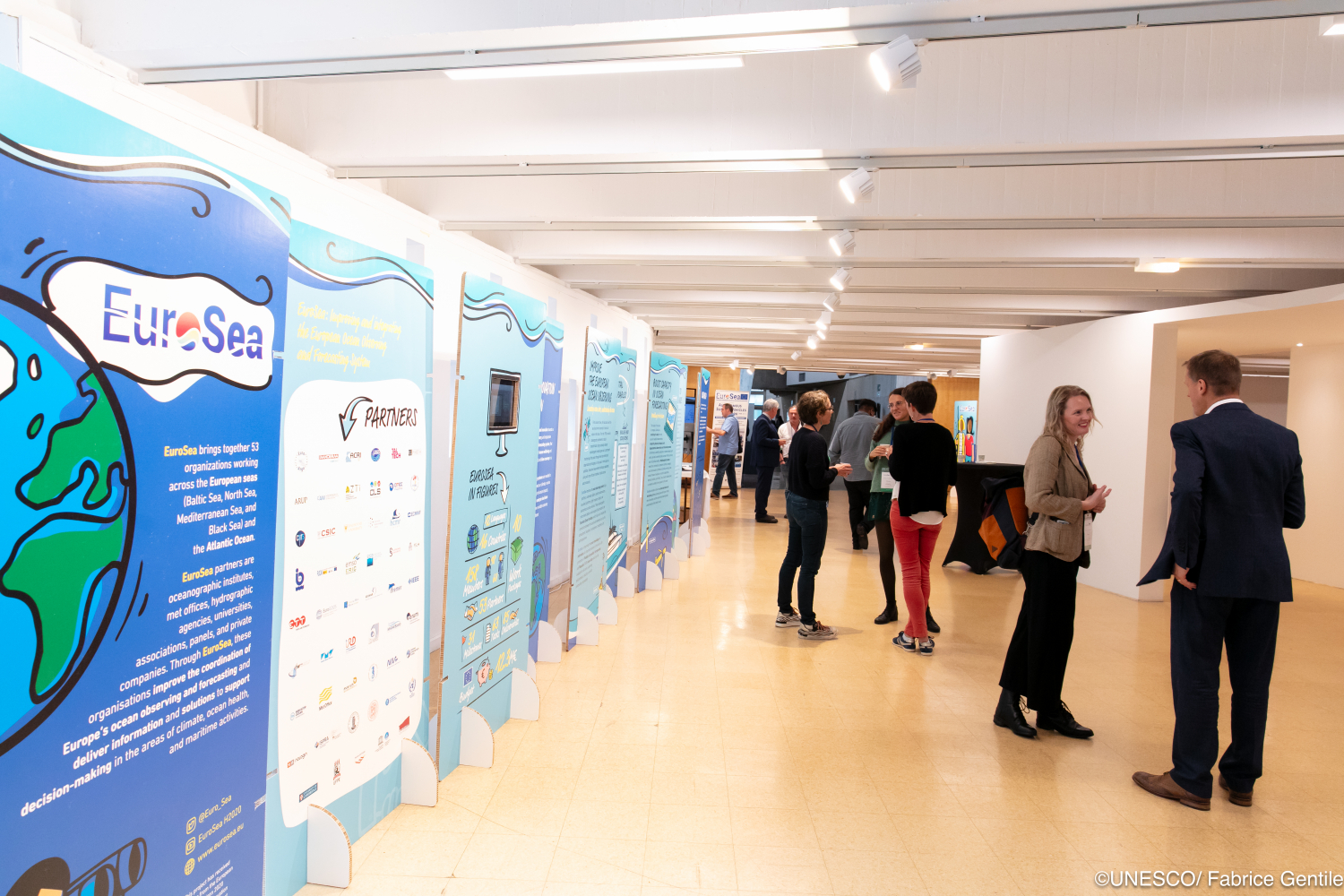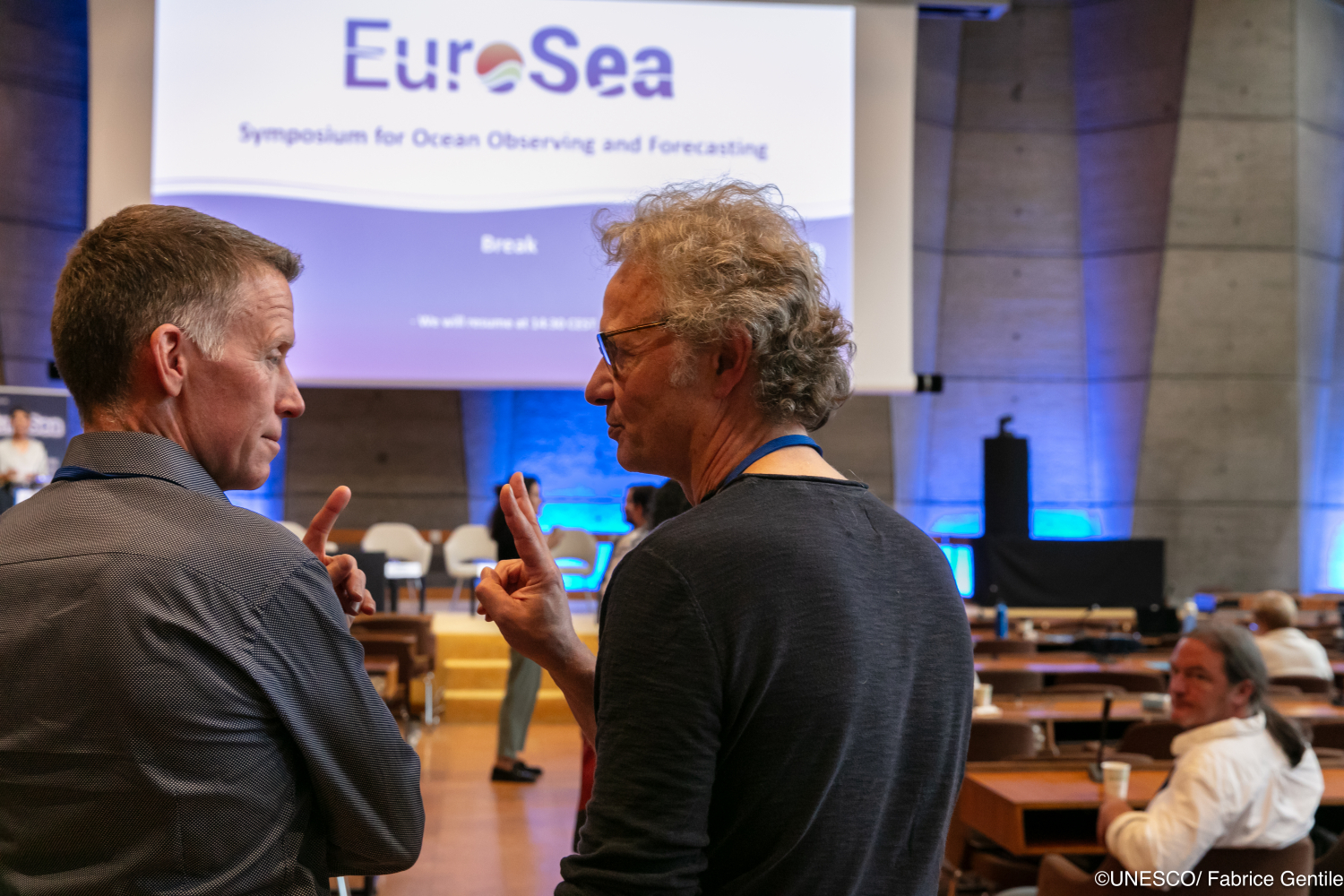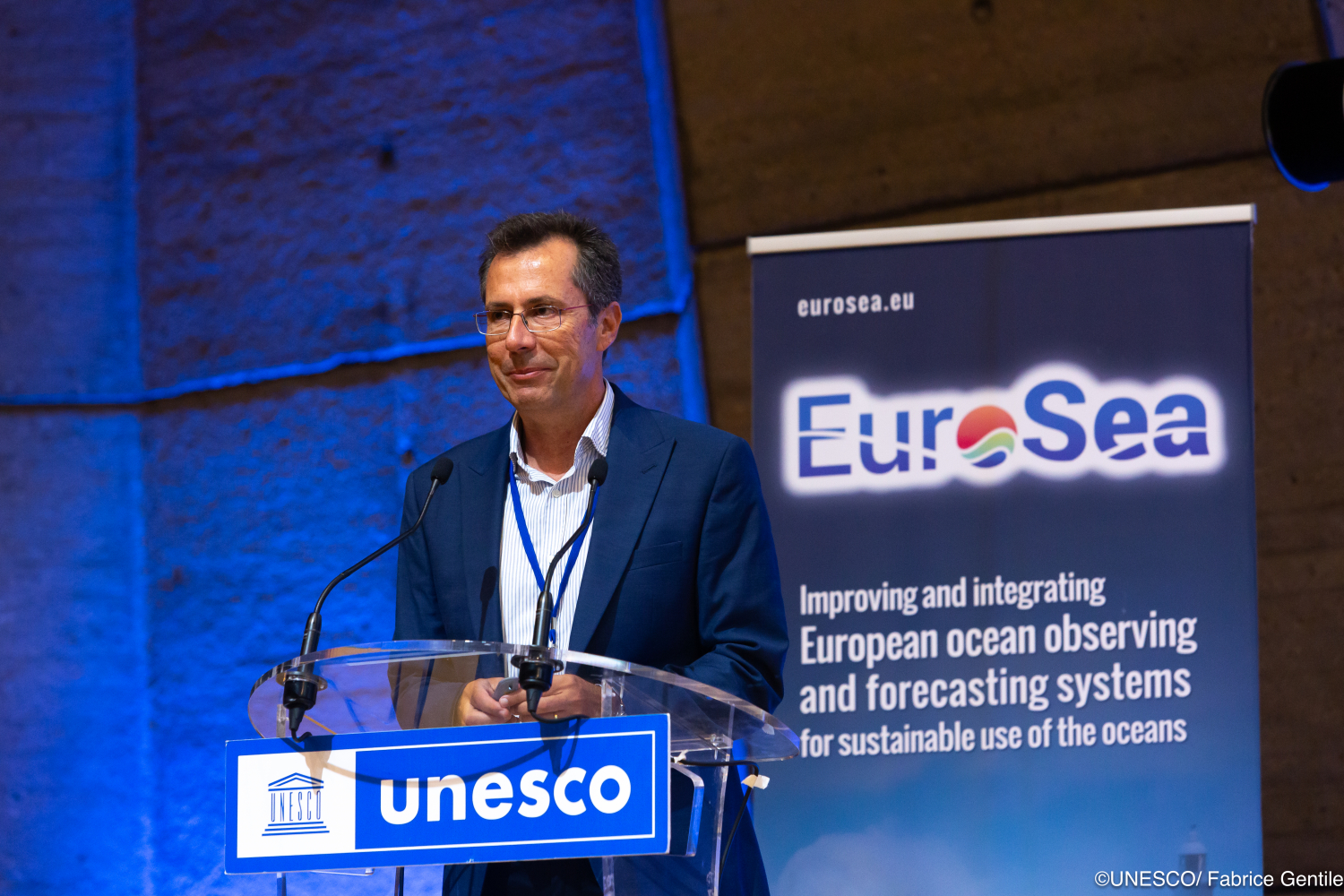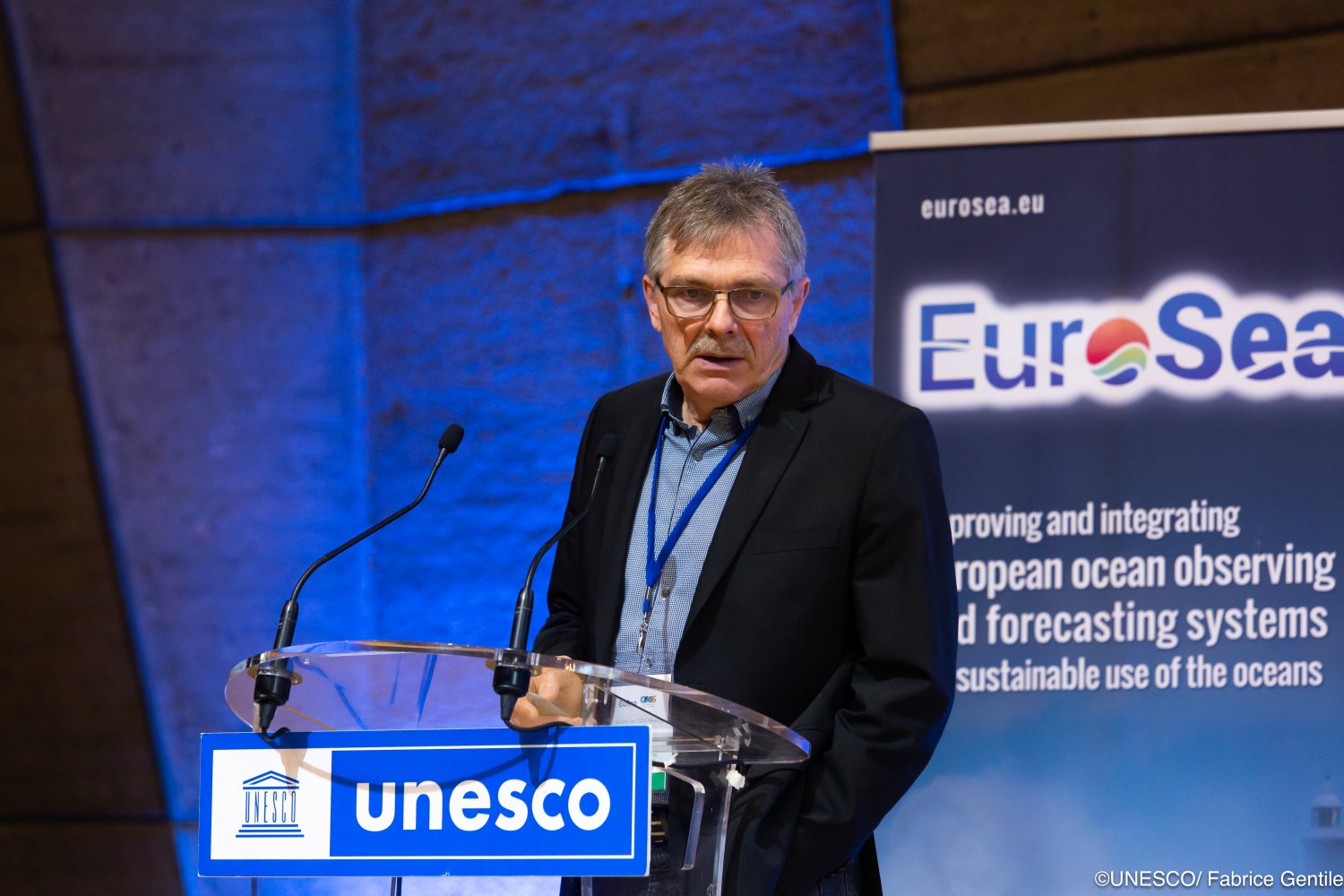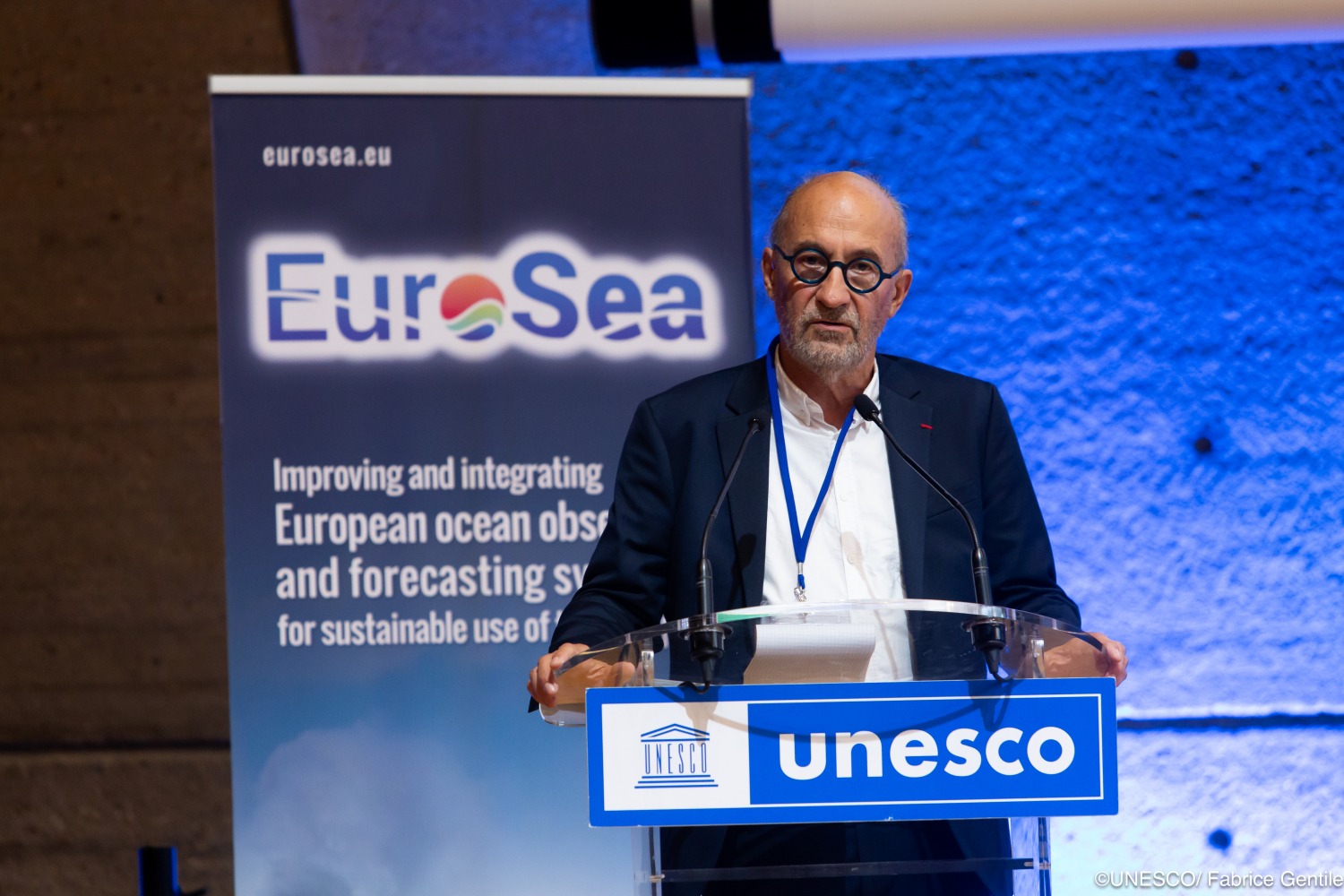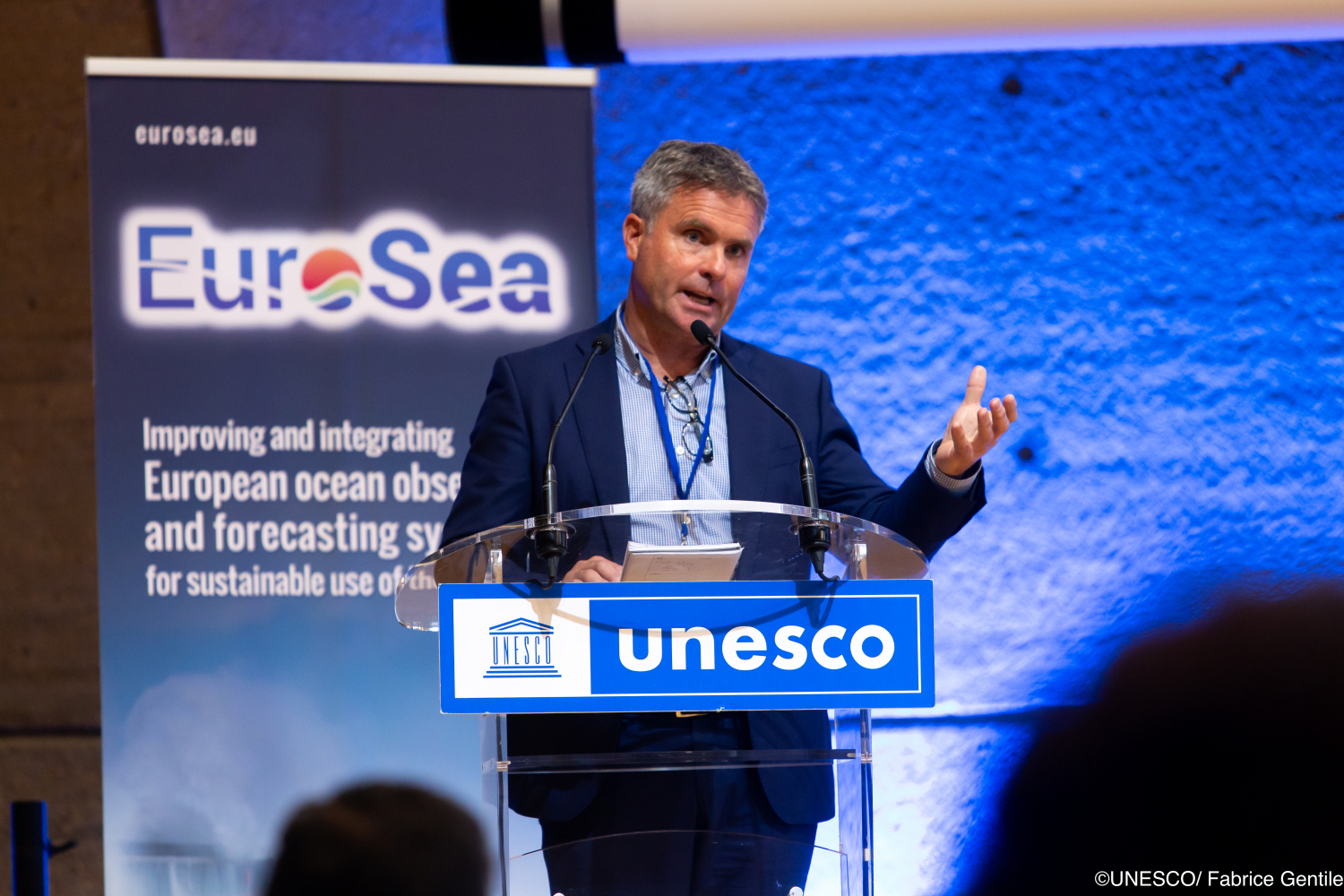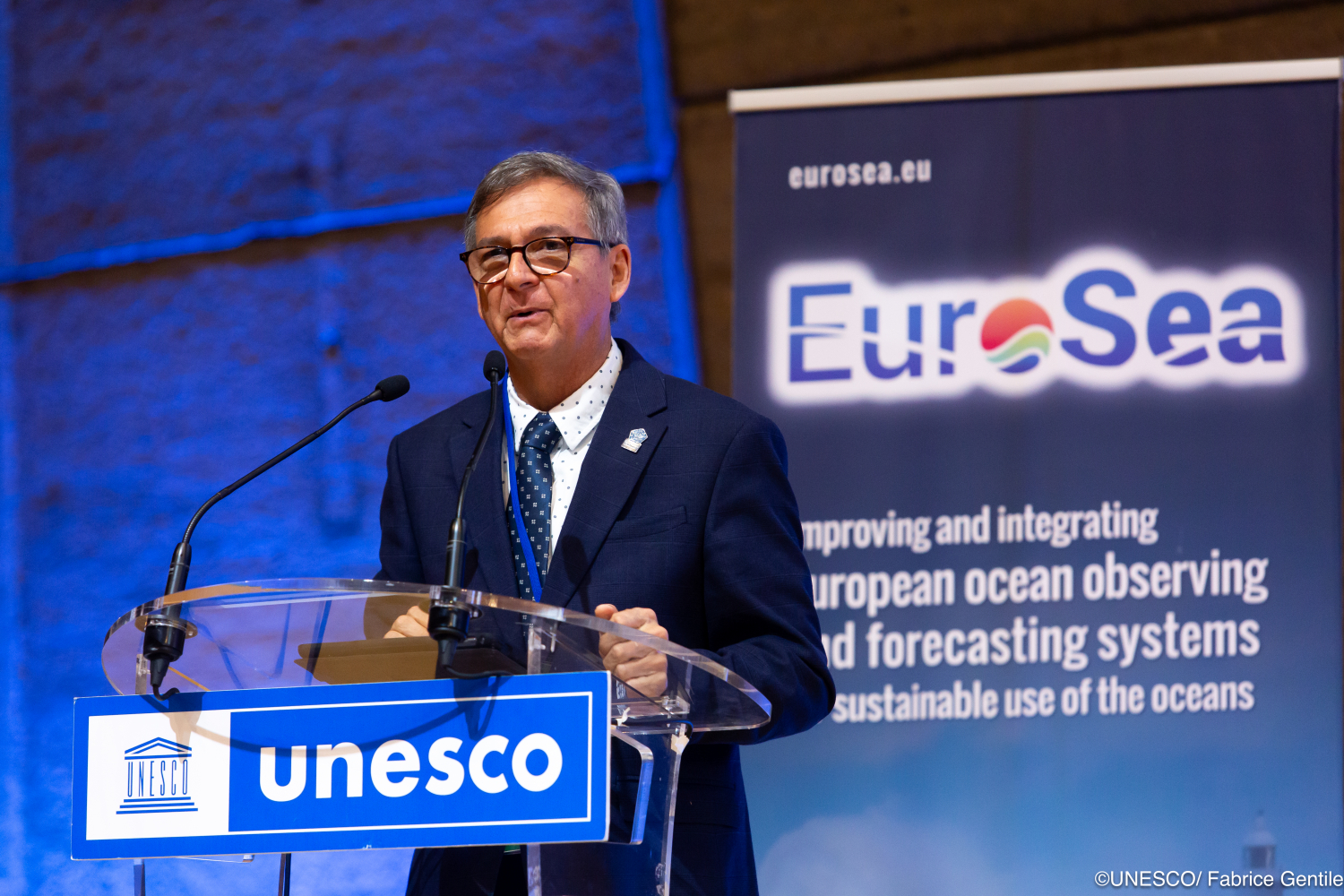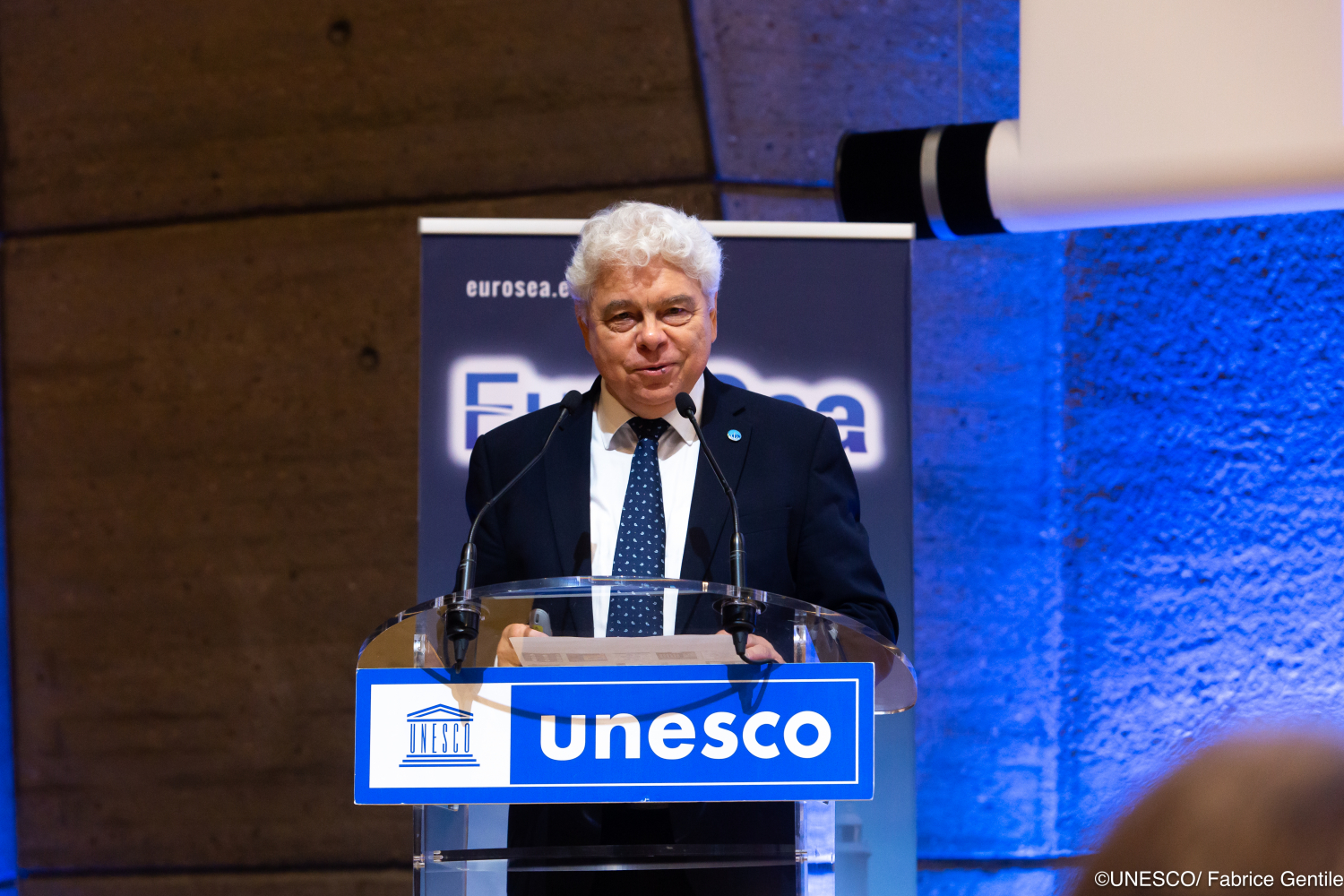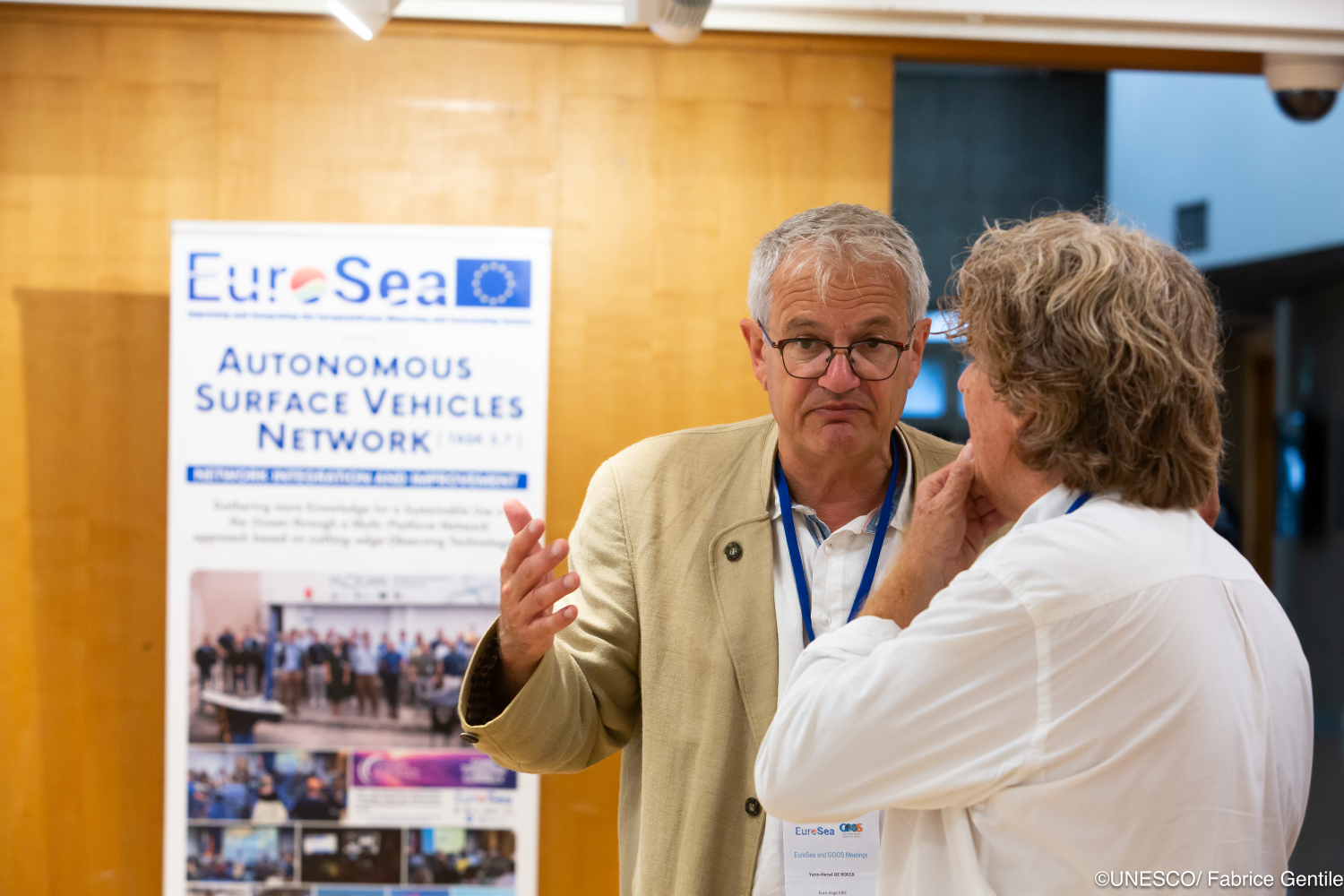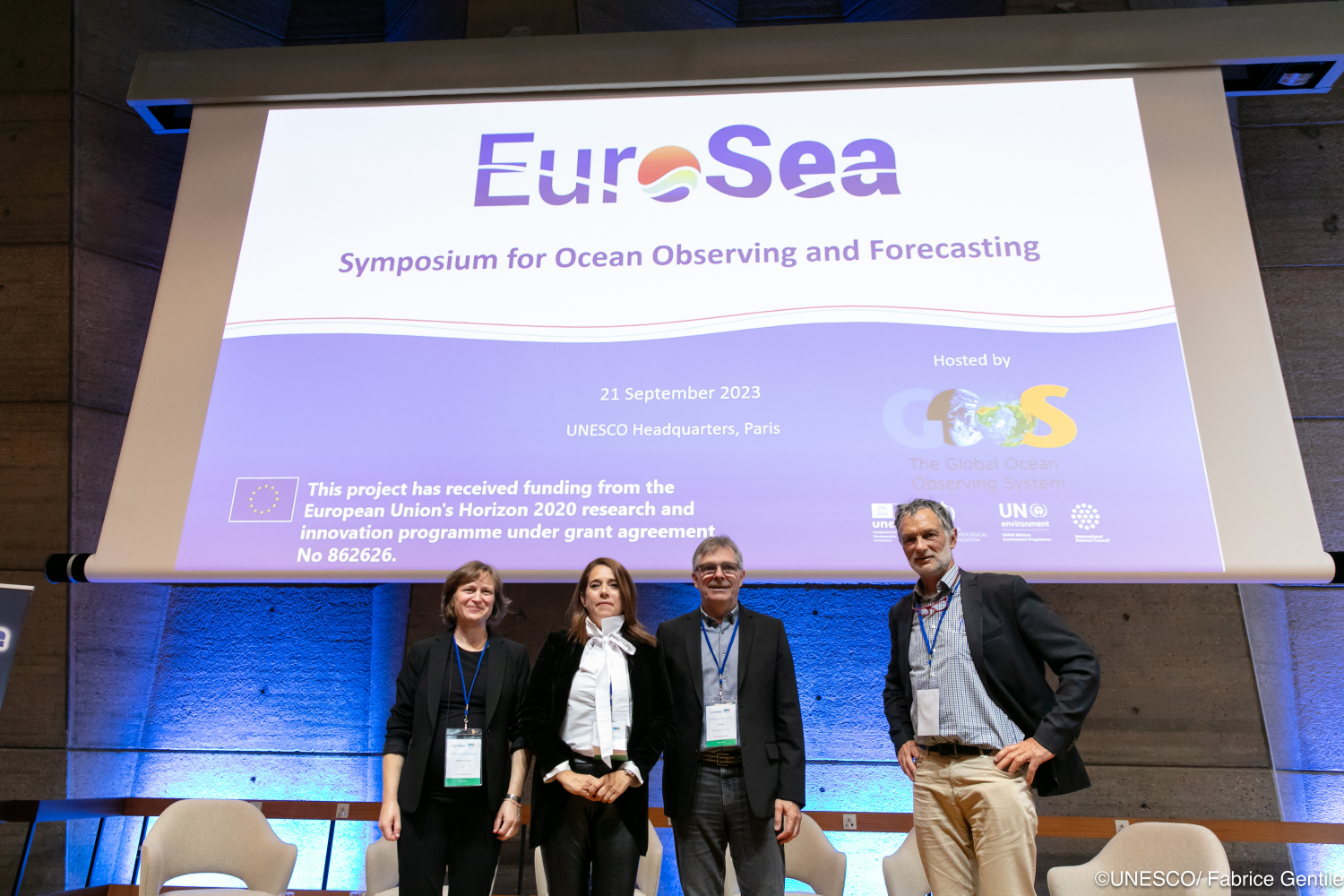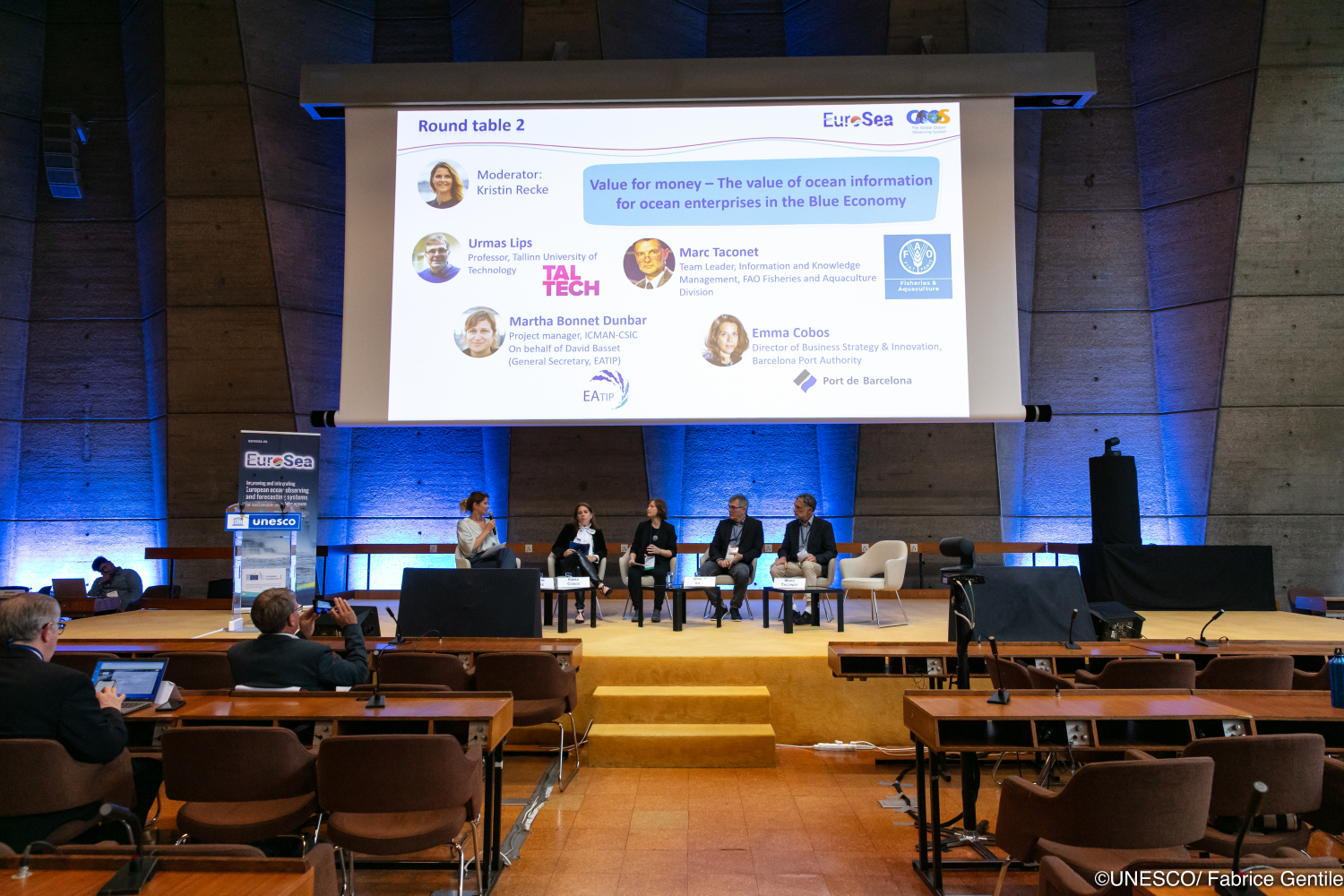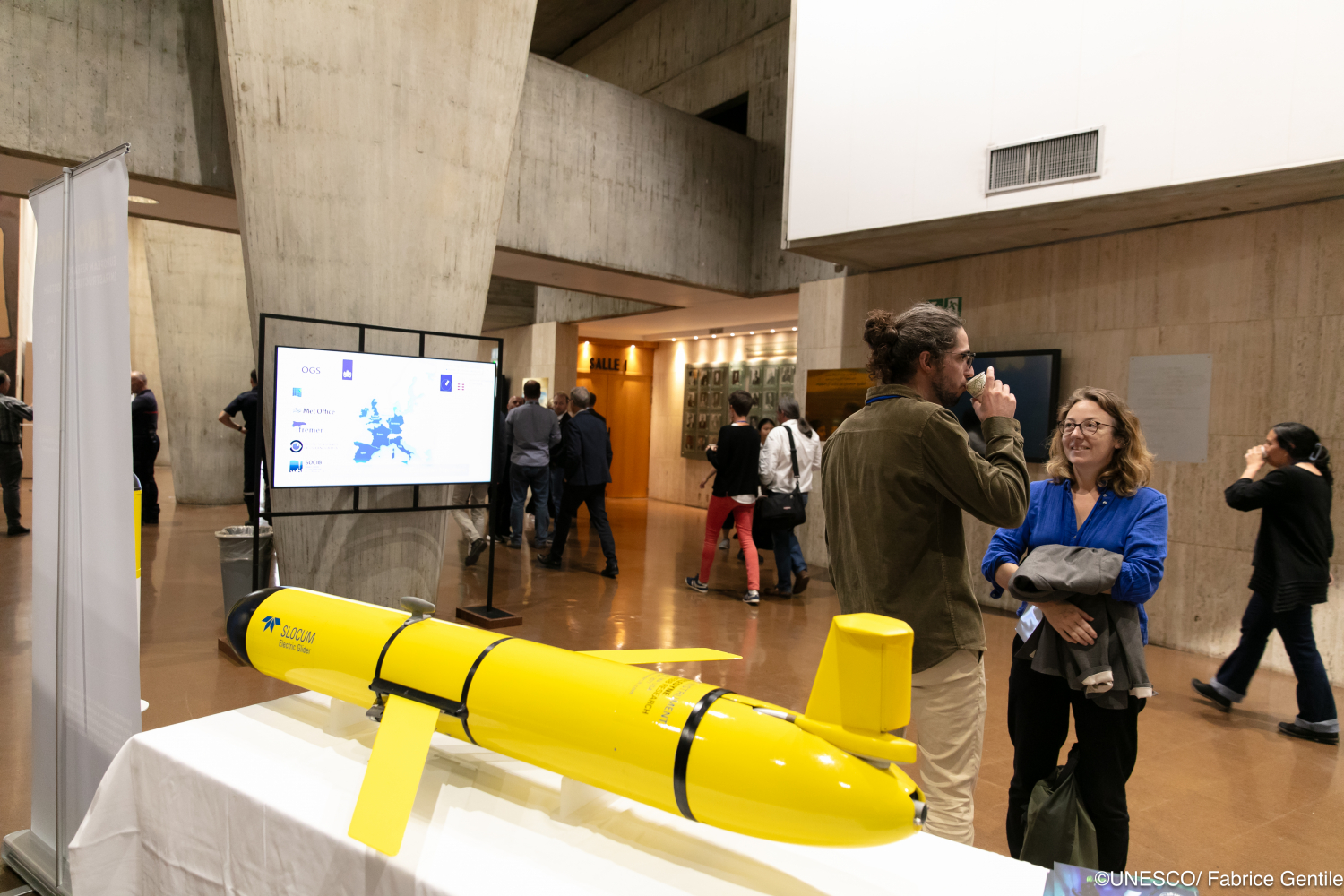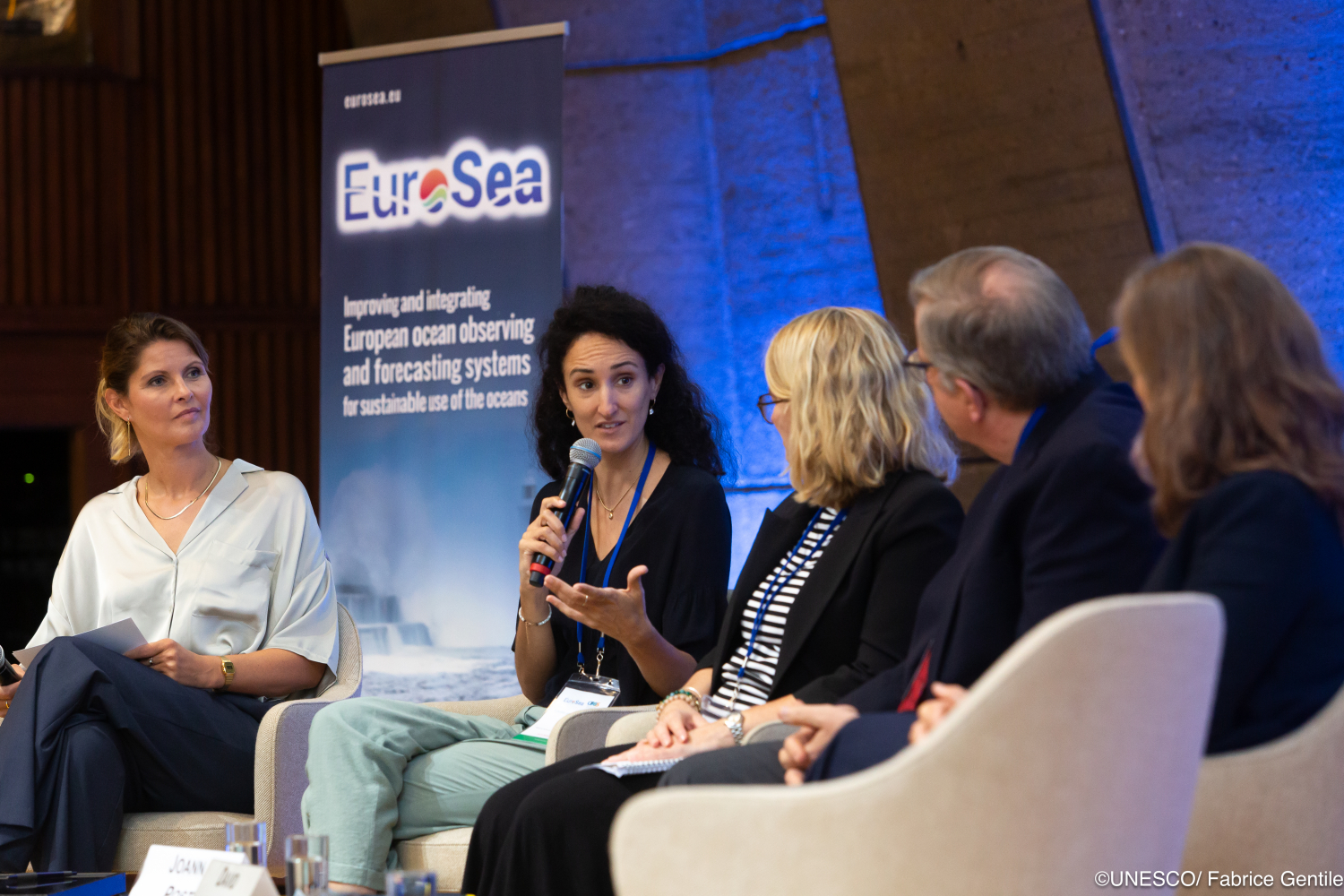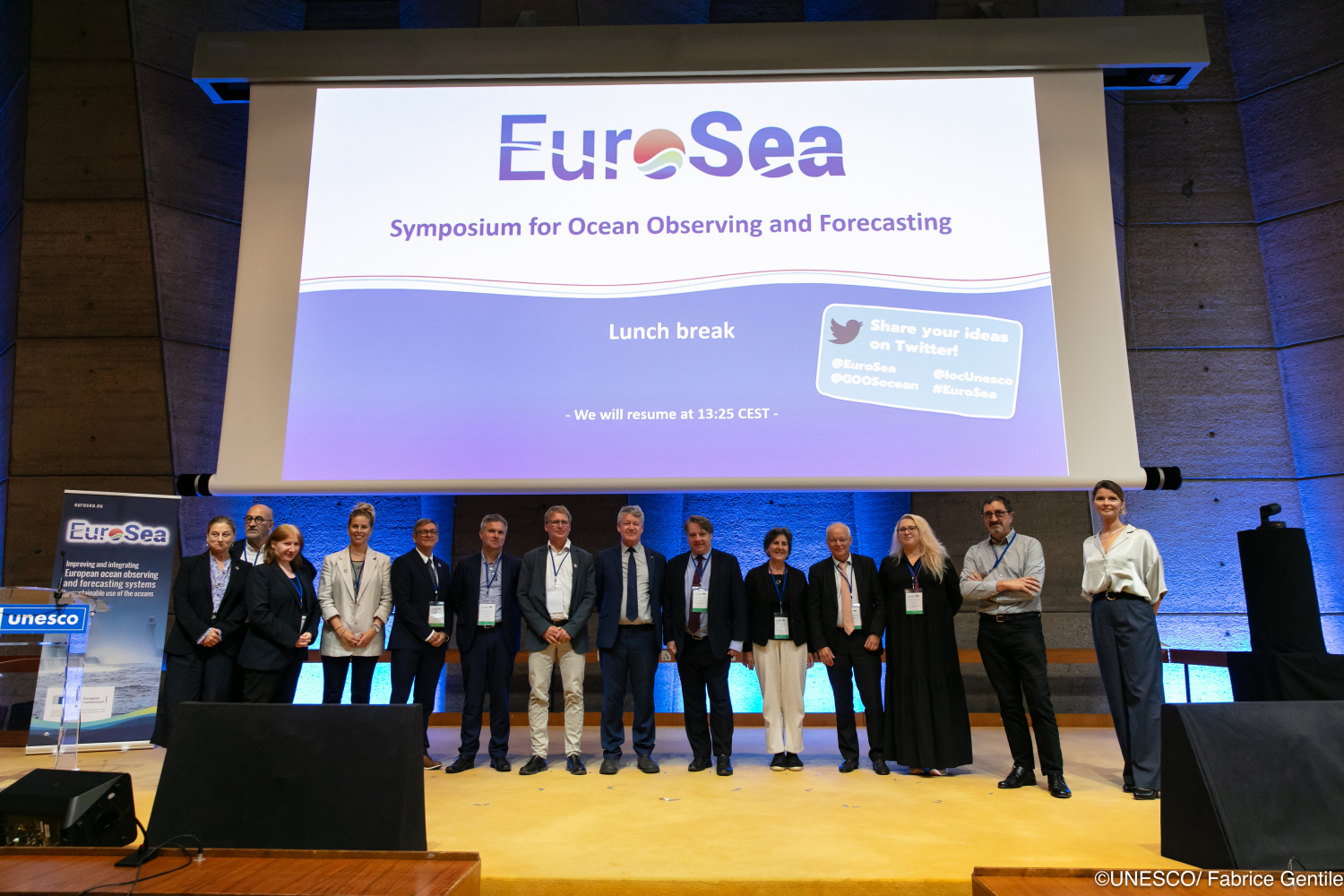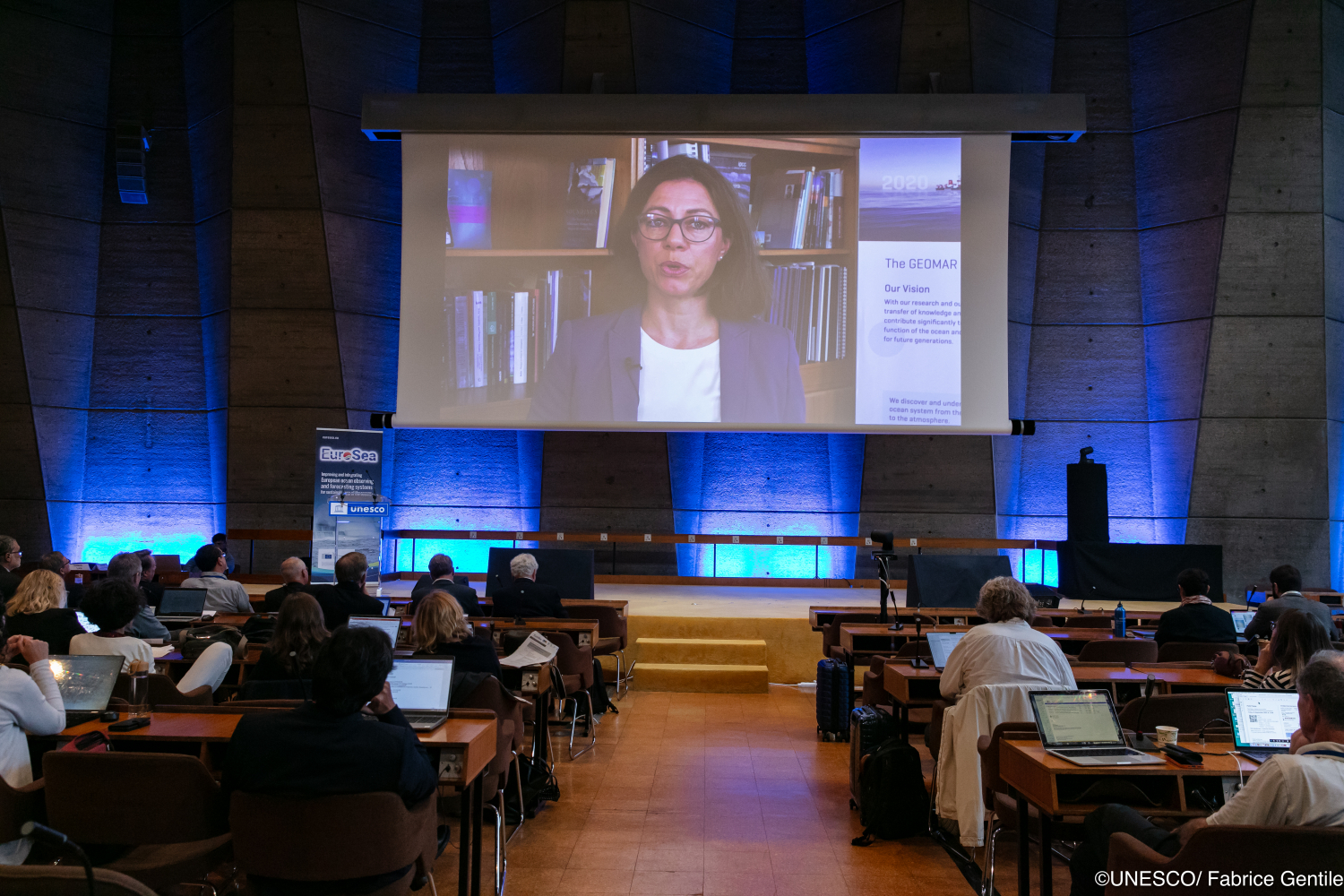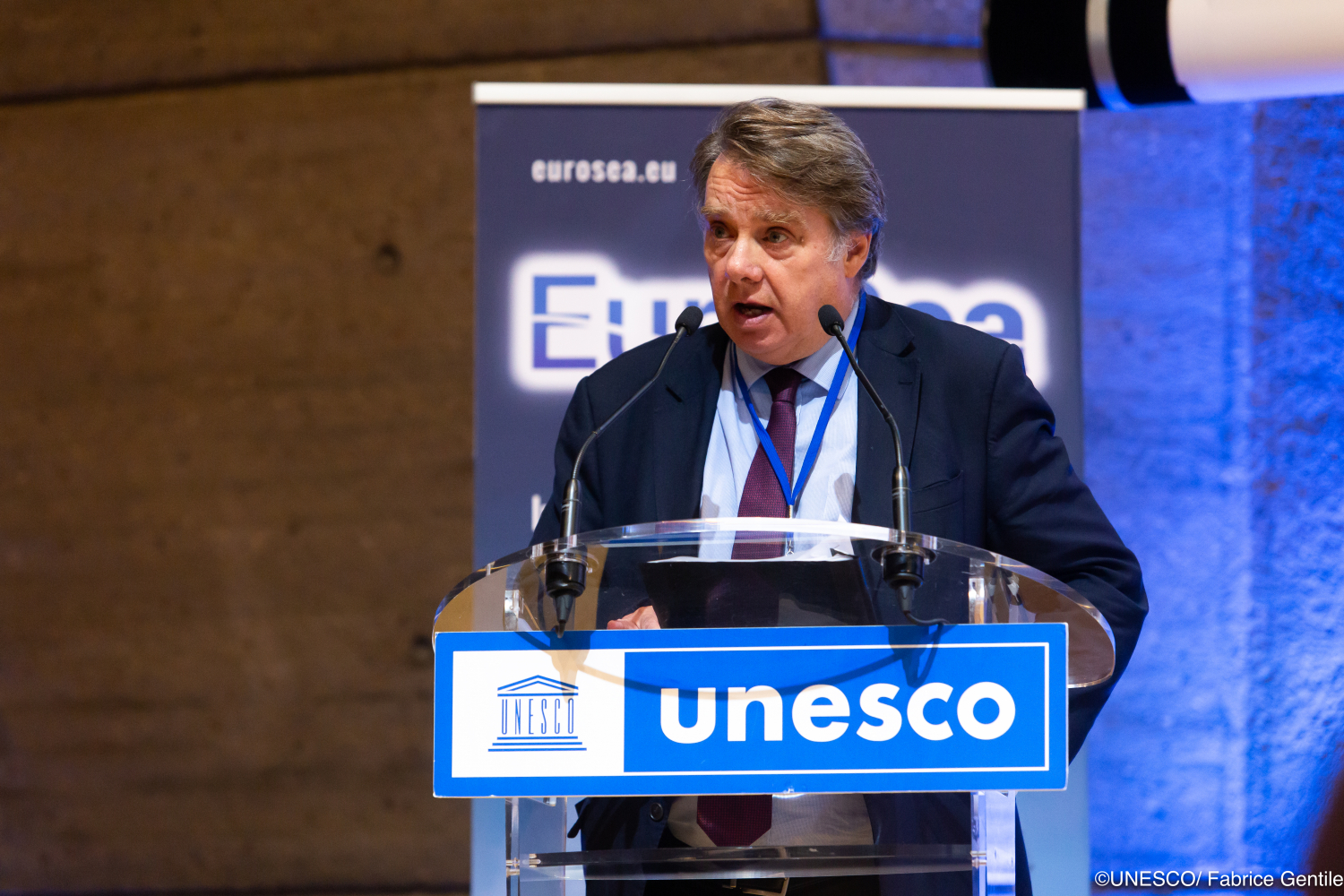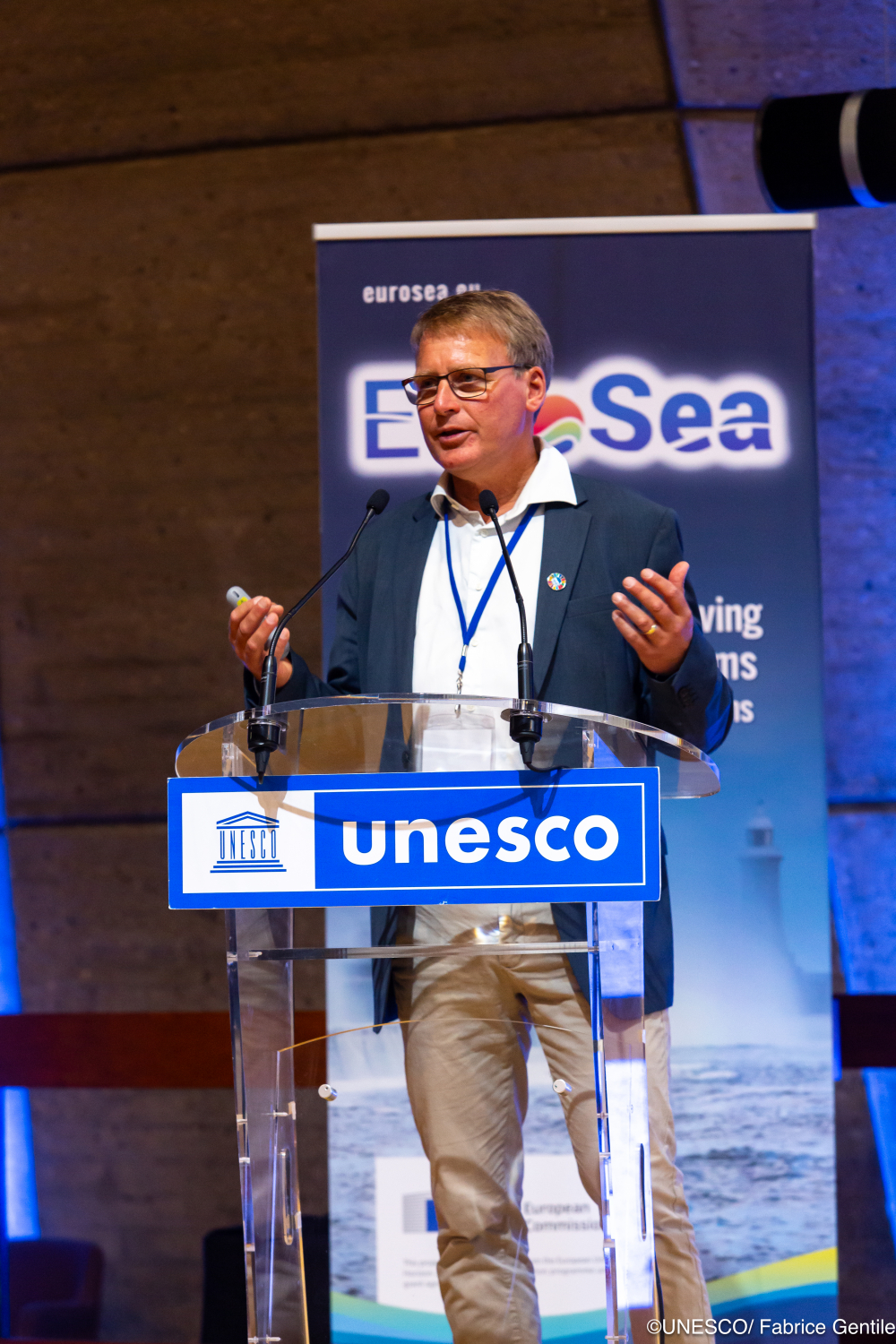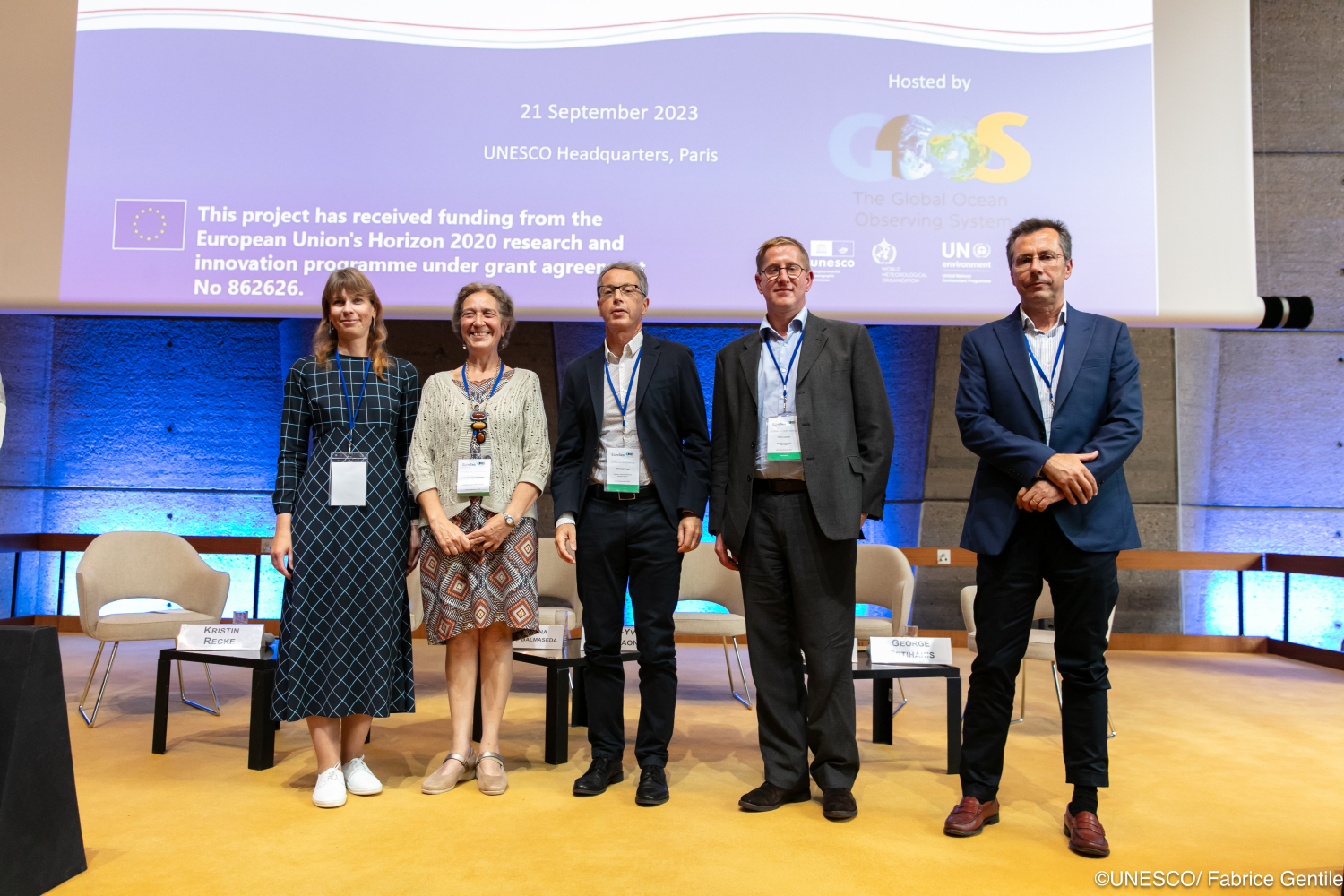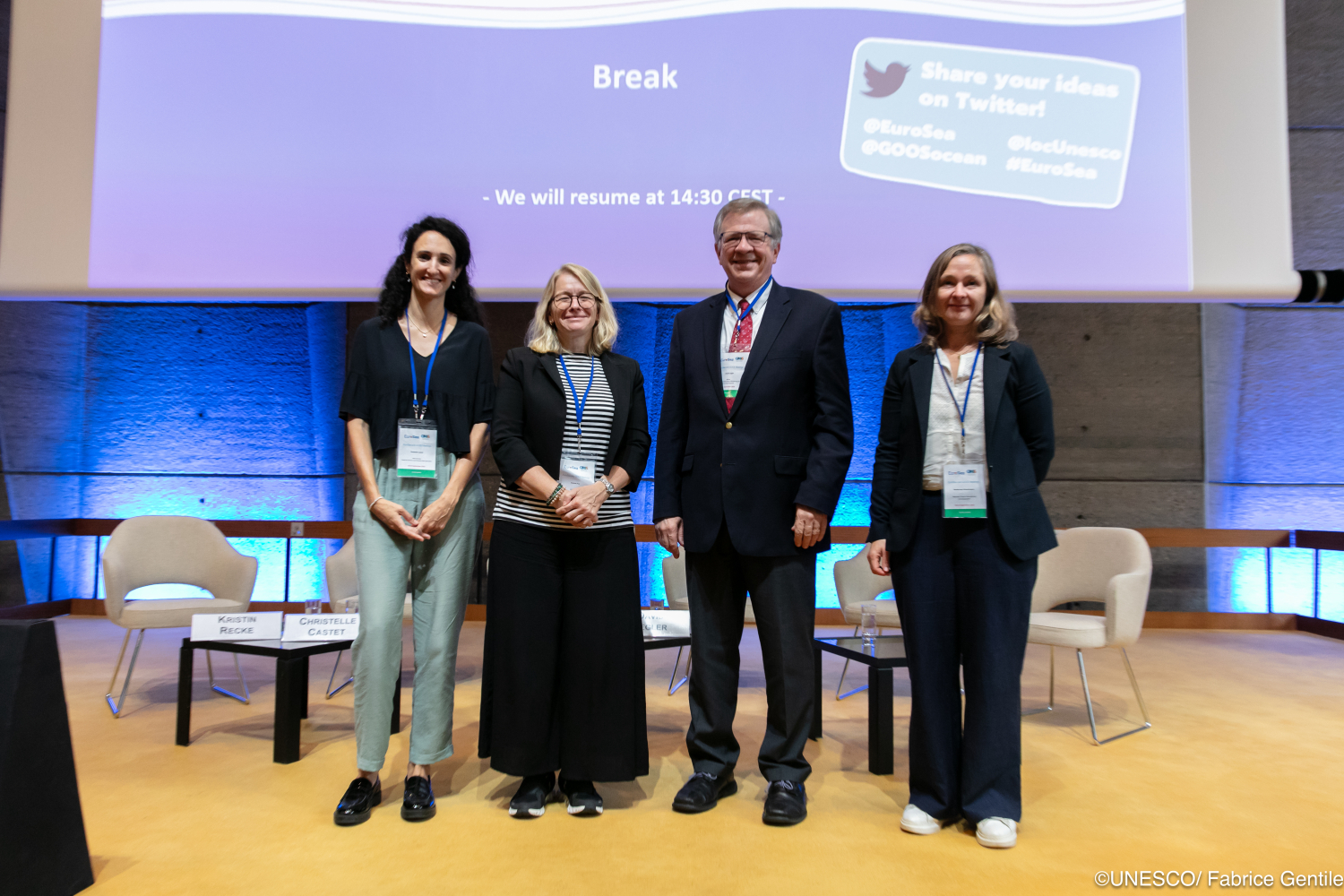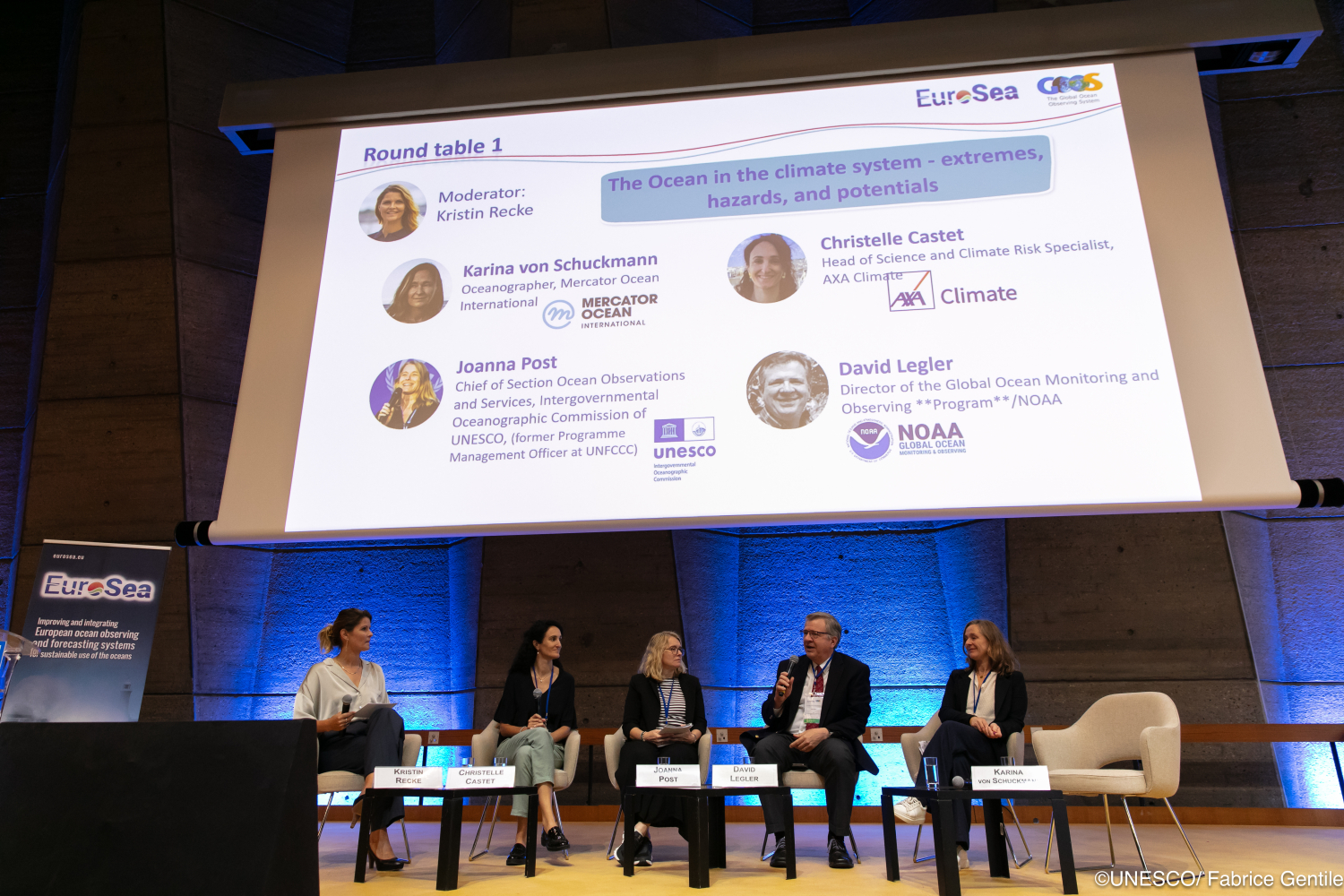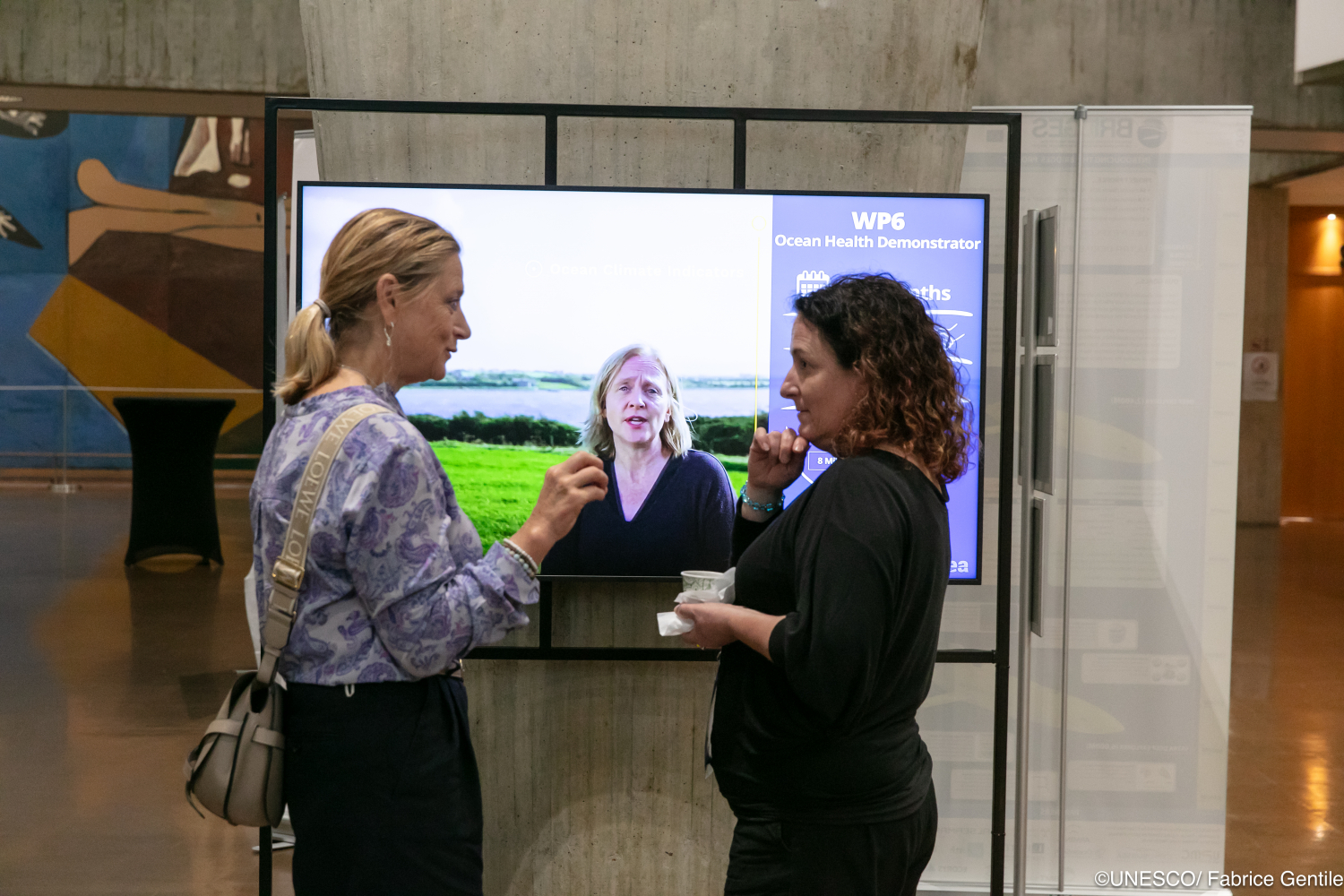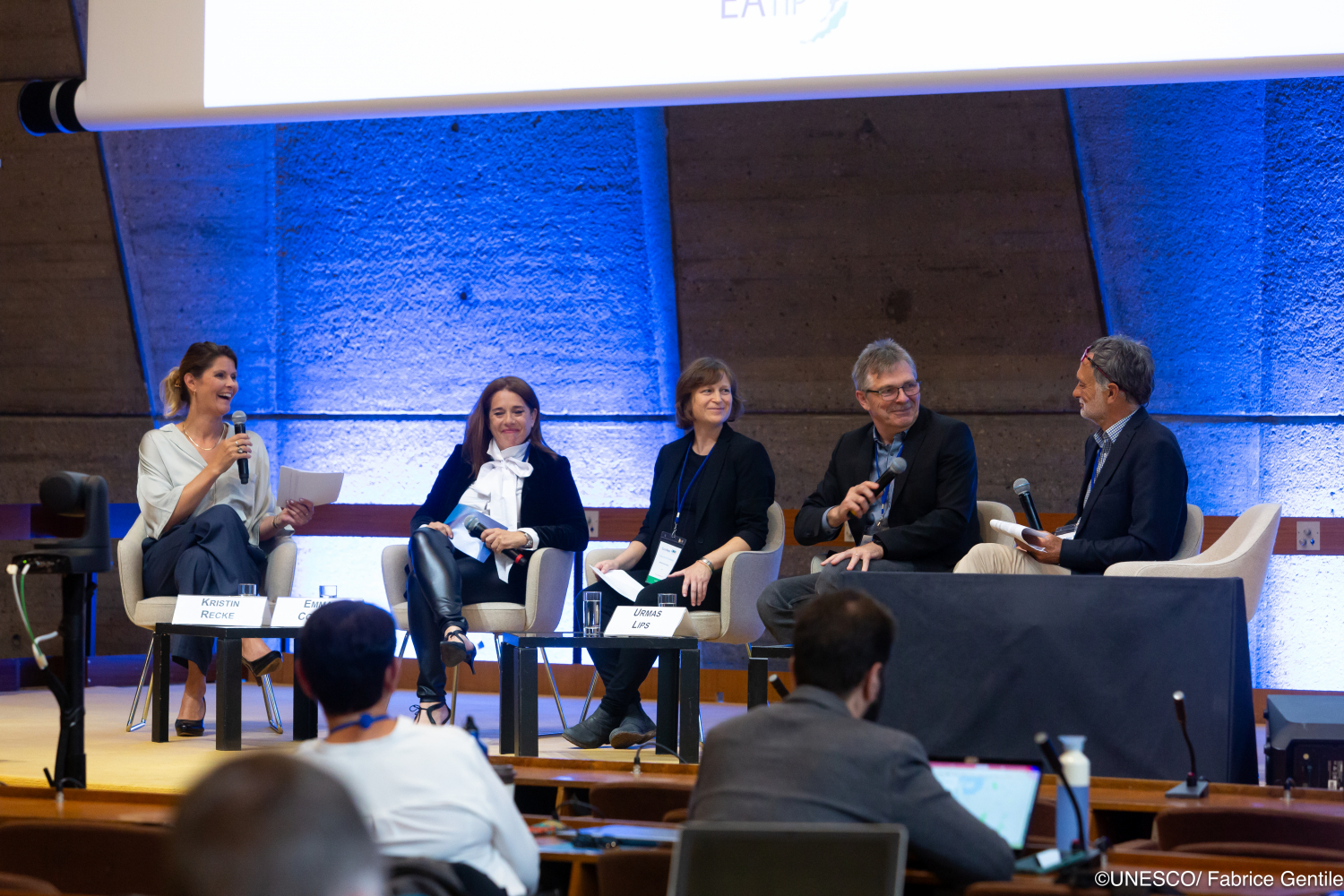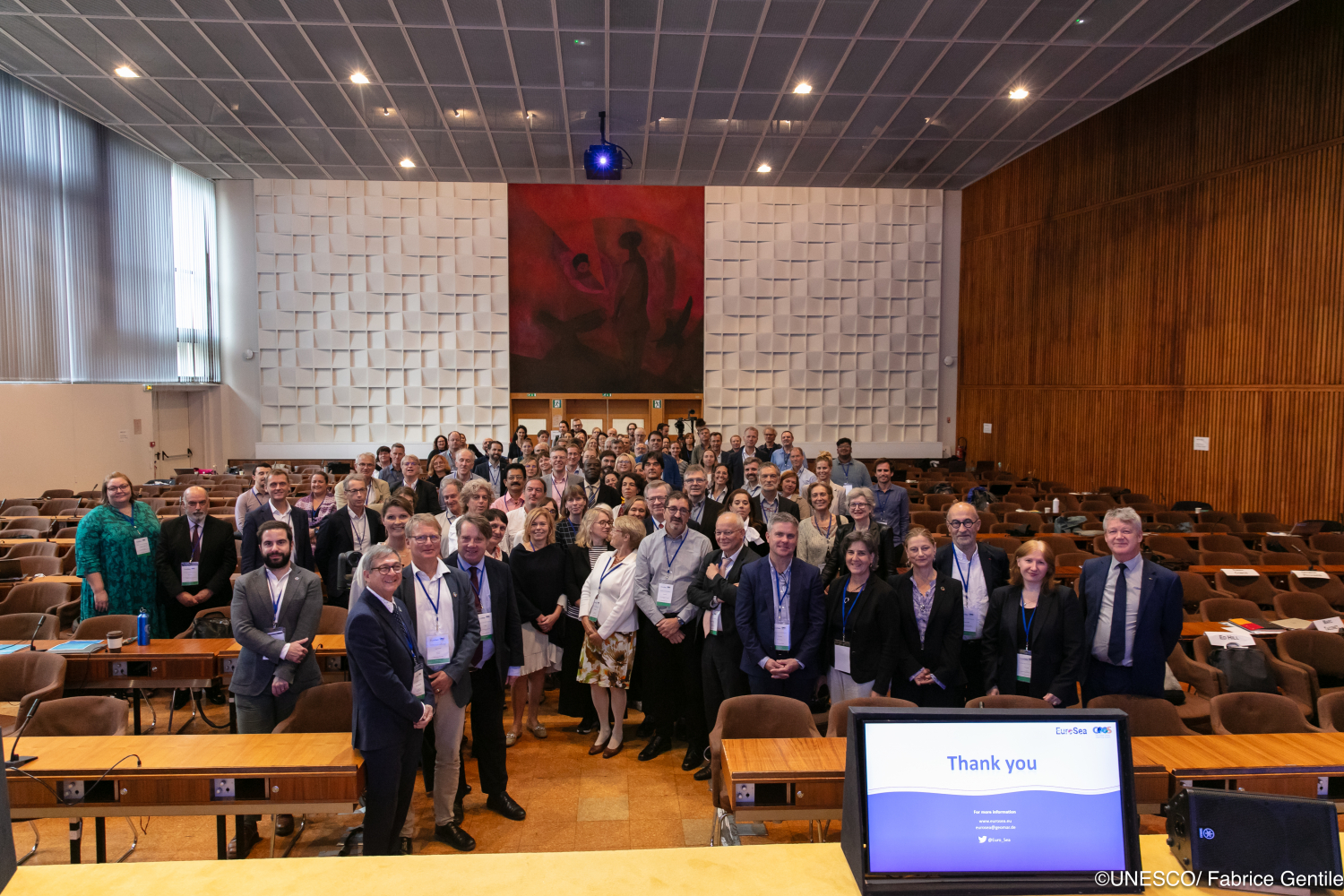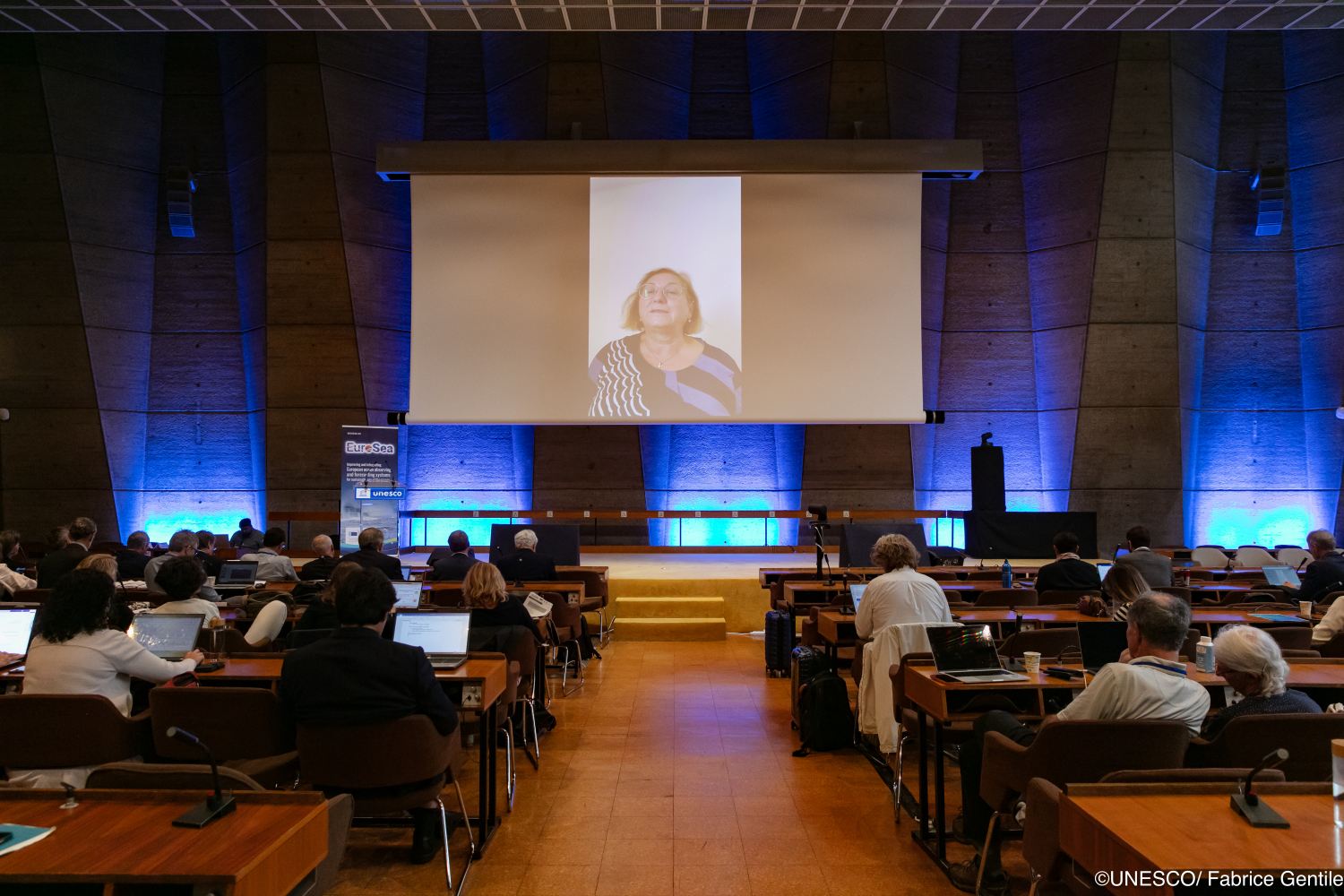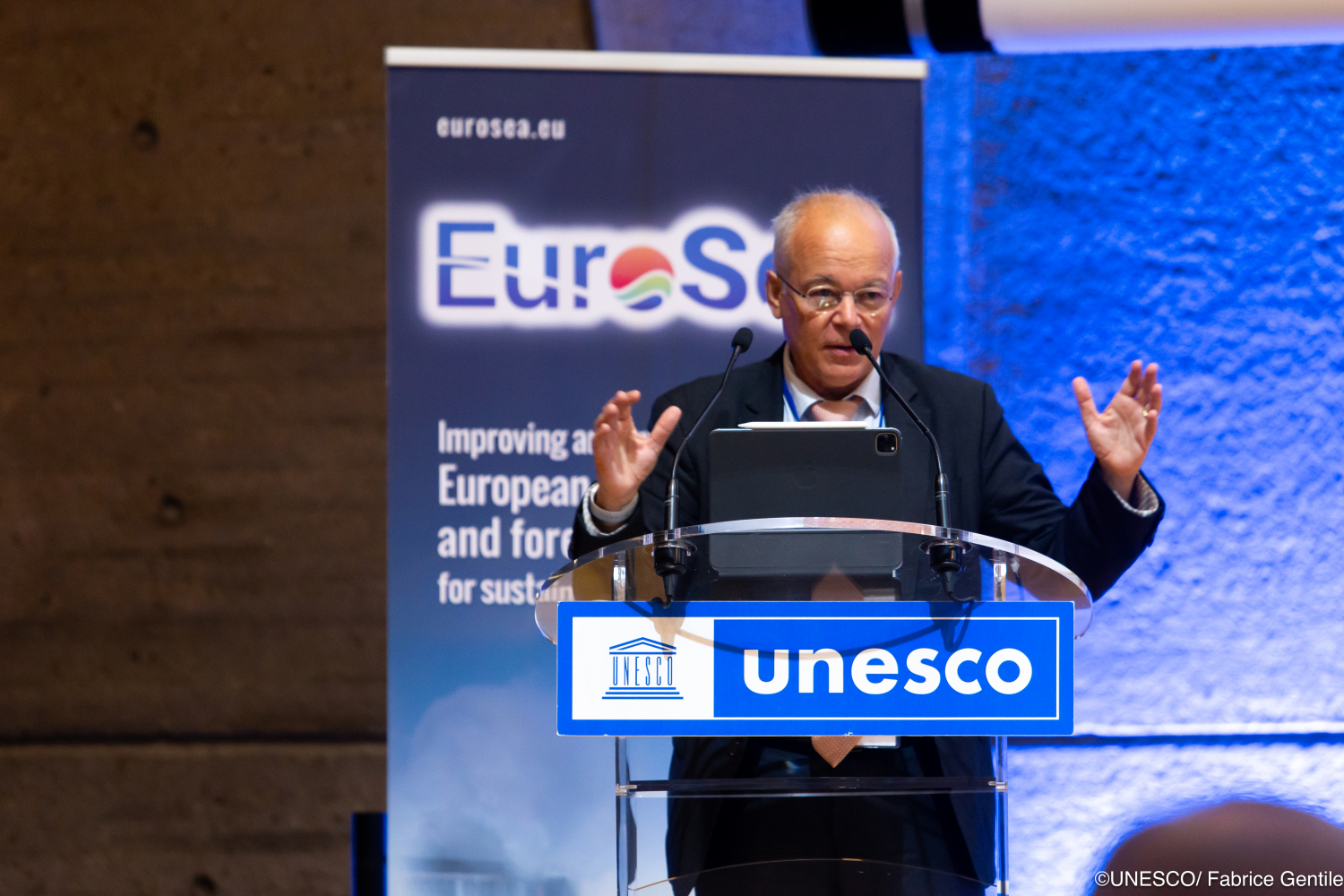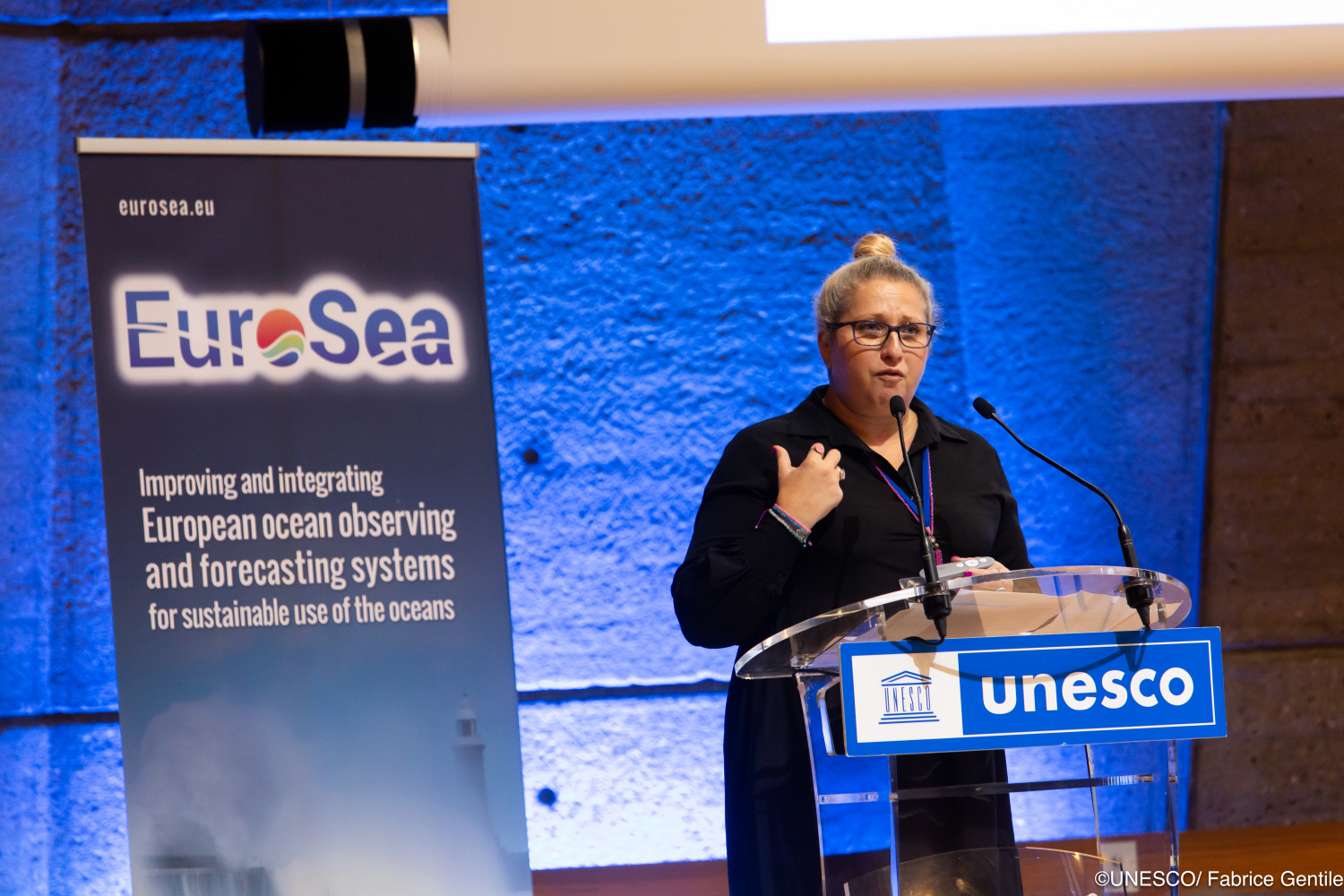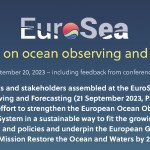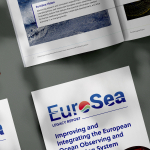Following the EuroSea Final General Assembly earlier in the week, on 21 September the UNESCO headquarters in Paris hosted the EuroSea Symposium on Ocean Observing and Forecasting. This high-level gathering aimed to bring together policy, science, and industry stakeholders to discuss and formulate strategies on sustainable ocean observing and forecasting. With over 160 registrations, the event was a standing testament to Europe’s strong commitment to strengthening the ocean observing and forecasting infrastructures, governance, and dialogue with the users of marine space and resources. For wider accessibility, the event was also live-streamed online.
In the morning session of the event a line-up of 18 distinguished speakers shared their insights. Vladimir Ryabinin, the Executive Secretary of IOC-UNESCO initiated the dialogue, followed by insightful perspectives from Toste Tanhua, EuroSea project coordinator and Zoi Konstantinou representing the European Commission’s Maritime Affairs and Fisheries. Additionally, key representatives from renowned oceanographic institutions such as Ifremer, IEO-CSIC, NOC, GEOMAR, INVEMAR, CNR-ISMAR, COI, Irish Marine Institute, Dalhousie University, Ocean Frontier Institute, GOOS, EU’s Sustainable Blue Economy Partnership, OECD and ESA also contributed their expertise and shared their perspectives.
In an effort to address the broad range of challenges and solutions in ocean observing, the symposium incorporated three intensive round table discussions involving 13 expert panellists. These discussions addressed crucial topics:
Round table 1 – The Ocean in the climate system – extremes, hazards, and potentials:
The panellists of the first round table emphasised the indispensable role the ocean plays in the larger climate system. As one of the most vital ecosystems on Earth, the ocean is under immense strain due to climate change, with certain impacts already irreversible. The panellists concurred on the necessity for robust partnerships across the scientific, private, and public sectors, all working in harmony to address climate challenges and foster sustainable growth in environmental, societal, and economic domains. A significant point of consensus was the imperative need for transparent and dependable data on climate change and its risks. Such data forms the bedrock upon which adaptation and resilience measures can be built and shared with the global community.
Round table 2 – Value for Money – The value of ocean information for ocean enterprises in the Blue Economy:
The second round table emphasised ocean information’s vital role in the blue economy, particularly for aquaculture, fisheries, and port authorities. Experts highlighted the need for collaboration, data integration, and investment in ocean observing systems. Enhanced data sharing can boost decision-making in sectors like fisheries and aquaculture. Additionally, advanced monitoring offers port authorities real-time operational data and local forecasts to optimise the port management. To advance the blue economy, strong partnerships and cooperation between the scientific and private sectors are essential. To make this sustainable and to build mutual trust and understanding, constant and open communication at eye level is essential. The openness and inclusion of all partners is a prerequisite to ensure that the parties benefit from each other and together achieve more than the sum of their individual activities would allow.
Round table 3 – Ocean Observing Gaps – Next steps for an integrated and sustained ocean observing system in Europe:
The third round table at the EuroSea Symposium delved into the current state of and gaps in European marine observing. The keynote speaker spotlighted both challenges and opportunities existing within the existing ocean observing networks. Key findings from the EuroSea project pointed out gaps in inclusivity and integration and the need for better best-practices sharing among EuroGOOS Task Teams – European networks of ocean observing platforms. A concerning revelation was the lack of sustainability in the observing systems. The panel stressed the importance of aligning resources and activities with user demands and application impacts. To realize a fully integrated and enduring European Ocean Observing System, the experts underlined the critical role of coordination, strong commitments, and political resolve across national, regional, and European scales.
The event concluded with the unveiling of the EuroSea ‘Declaration on Ocean Observing and Forecasting’. This document articulates the community’s strong call for a united and collaborated effort across Europe, emphasising the ocean’s pivotal role in various aspects of human life and the imminent threats from extreme climate events and anthropogenic changes. The declaration stresses the urgency of a coordinated, sustainable system that integrates national efforts, ensures data sharing, and enables swift dissemination of ocean knowledge. Alongside highlighting EuroSea’s achievements and roadmap, it advocates for technological advancement, public-private collaborations, and underlines the need for inclusion and diversity within the Marine Science community.
The EuroSea Symposium in Paris wasn’t just an academic gathering. It was a call to Europe and the world about the vital importance of the ocean and the imperative need for an integrated observing and forecasting infrastructure. As humanity is confronted with the challenges of a changing climate, dwindling resources, and environmental degradation, the symposium’s messages ring louder than ever: It’s time for action. Europe, with its scientific competence, policy frameworks, and public-private synergy, has the chance to take the lead.
Access the YouTube videos for the speaker’s talks and the various round table sessions from the Symposium below:
-

EuroSea Symposium on Ocean Observing and Forecasting - International perspectives & success stories
-

Round table 1: The Ocean in the climate system-Extremes, hazards and potentials
-

Round table 2: Value for money-The value of ocean information for enterprises in the Blue Economy
-

Round table 3: Ocean observing gaps-Next Steps for an integrated & sustained ocean observing system
Access a photo gallery featuring images captured at the Symposium below:
